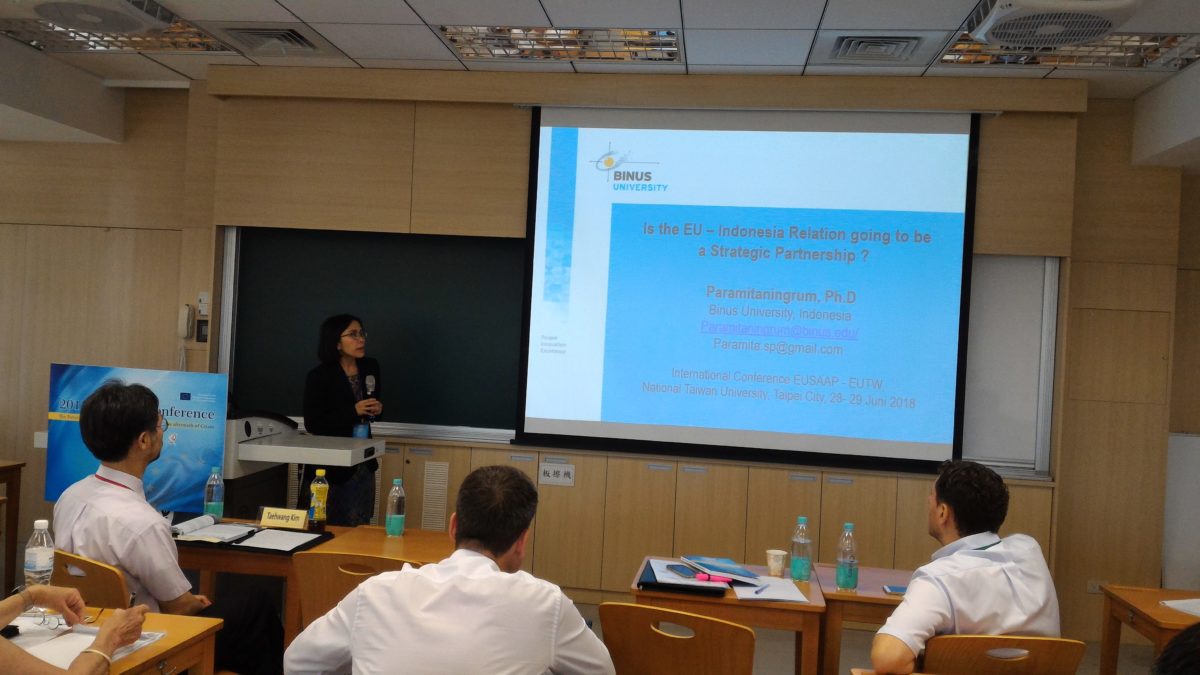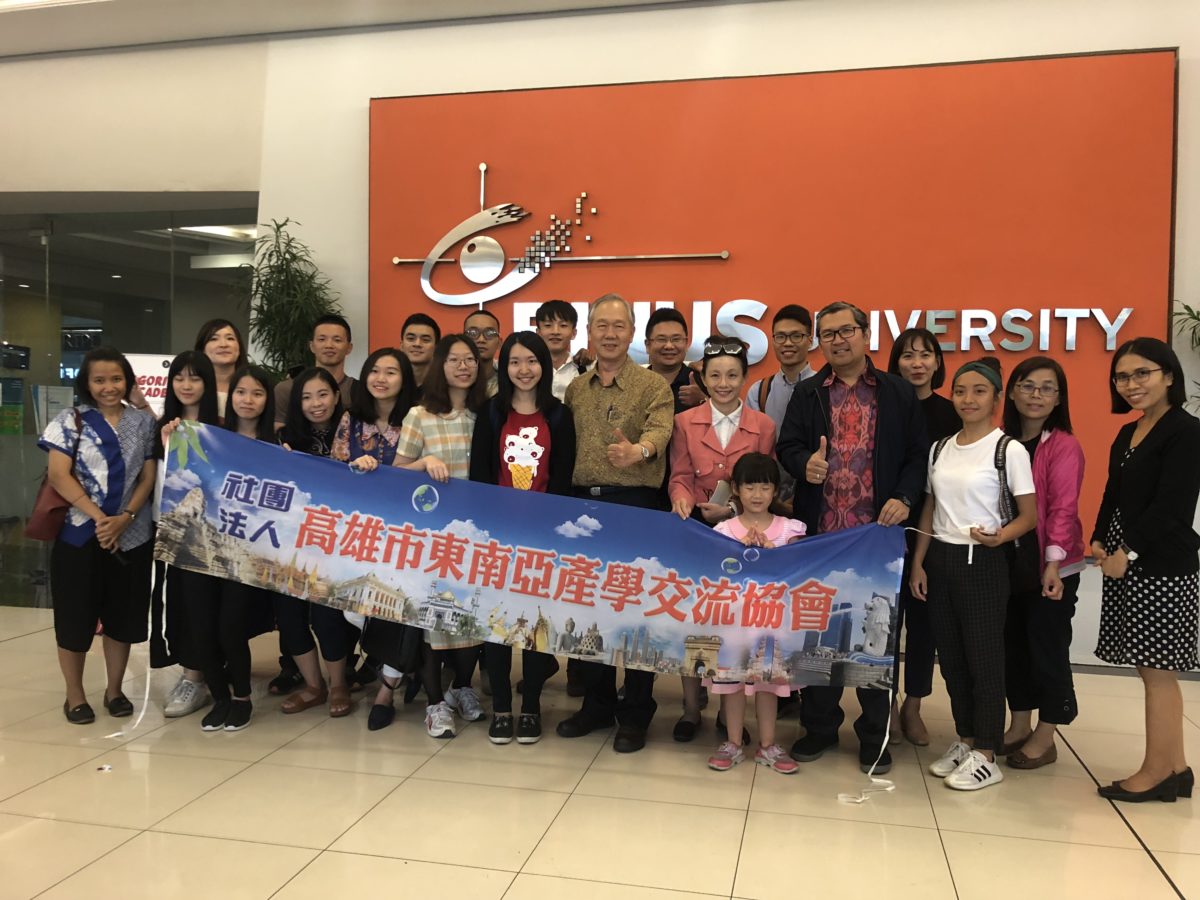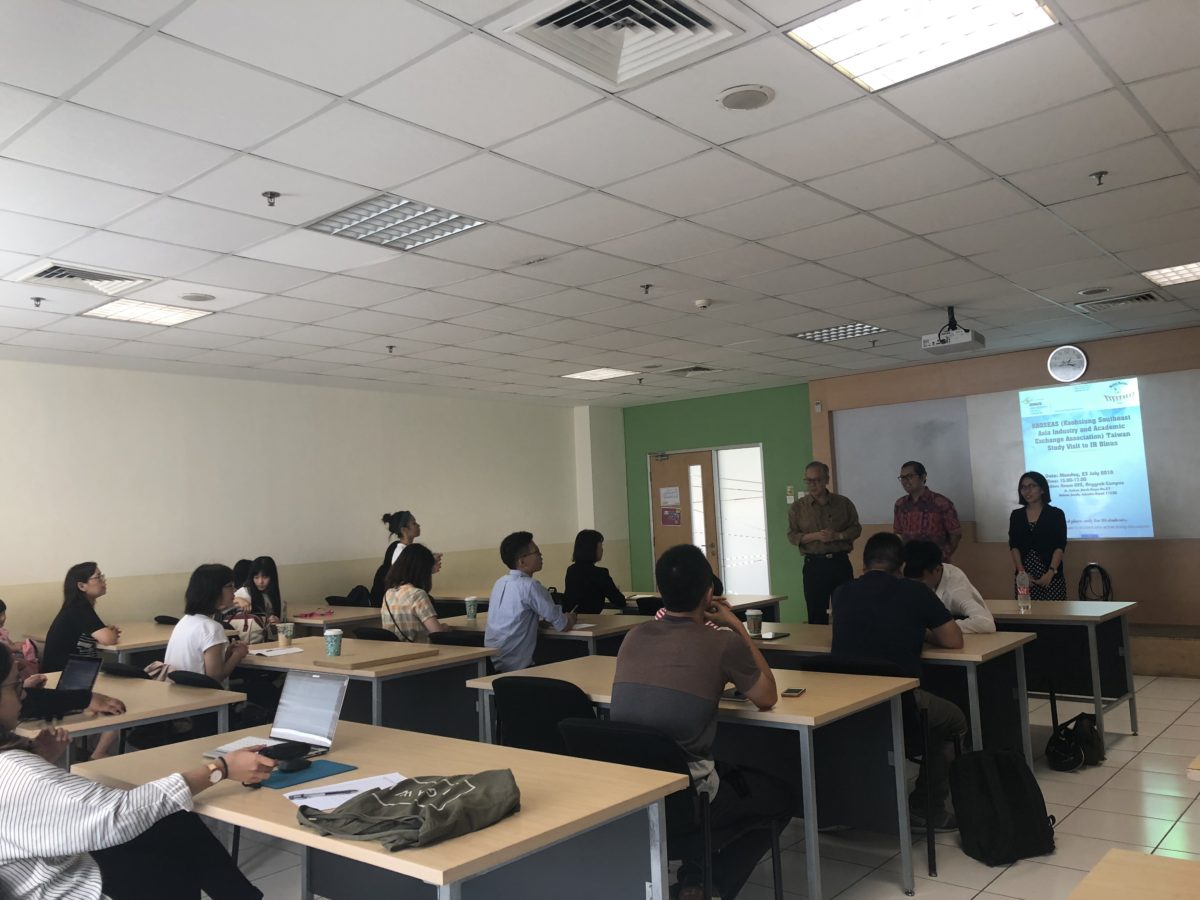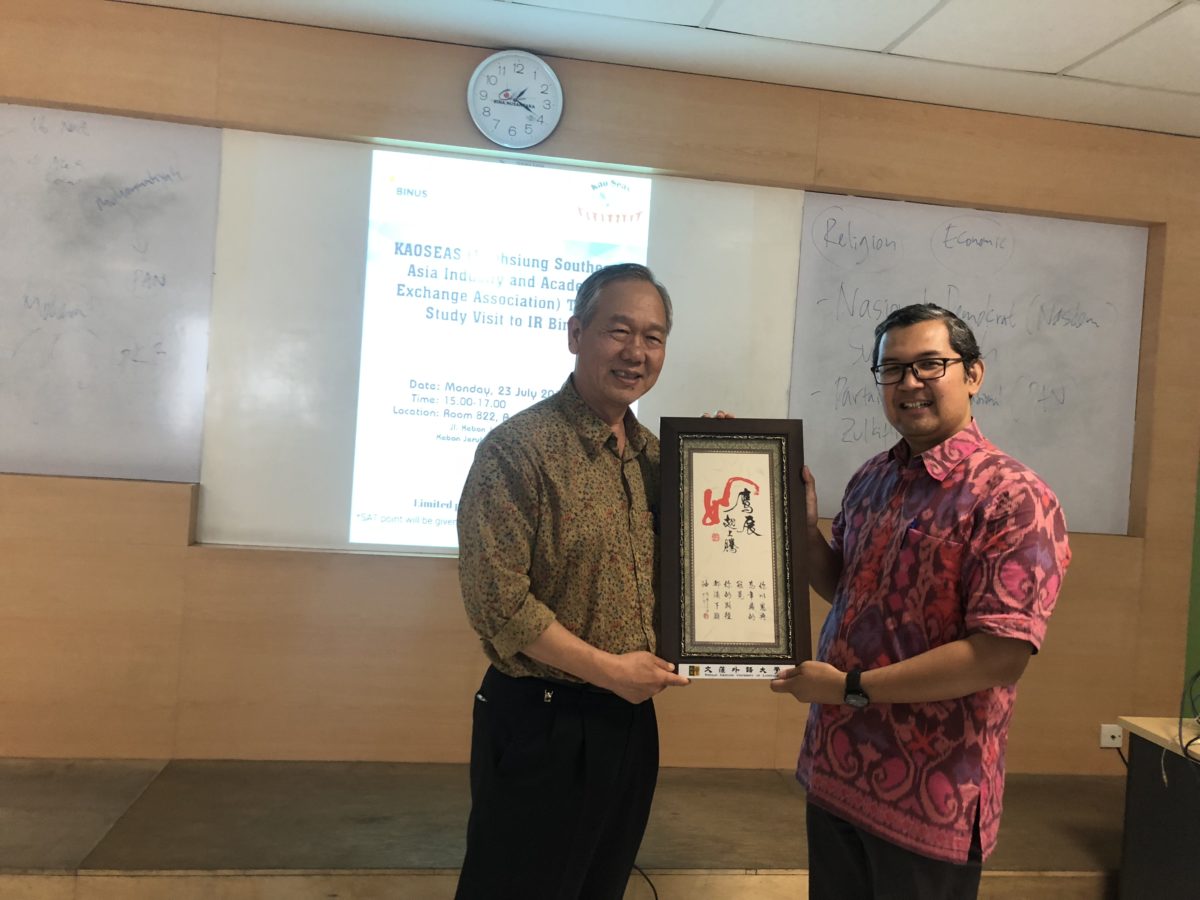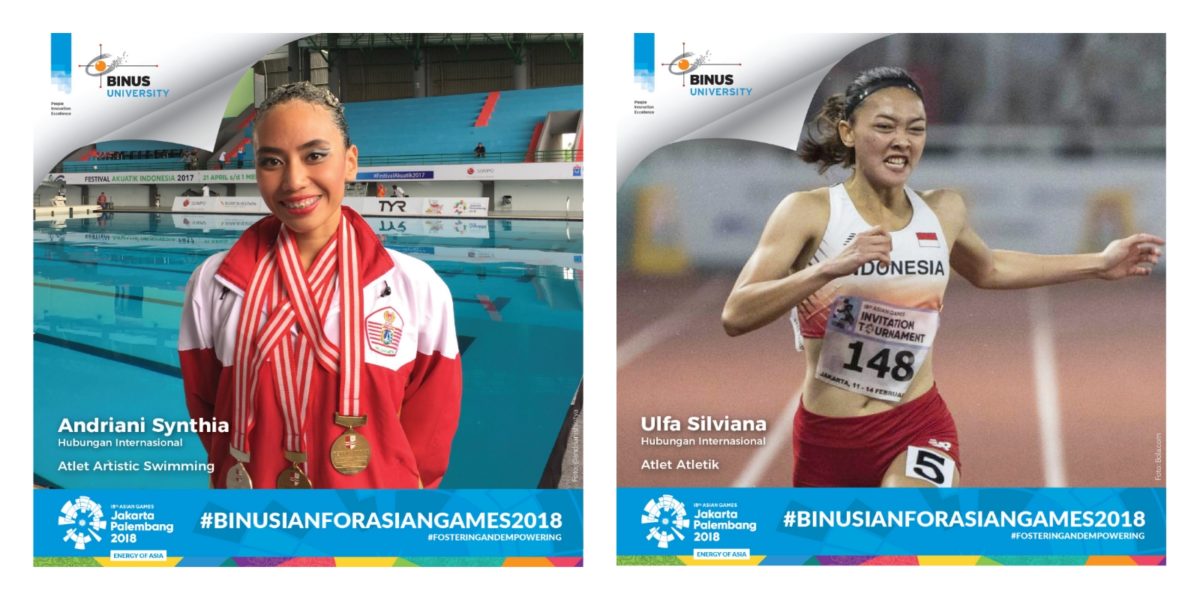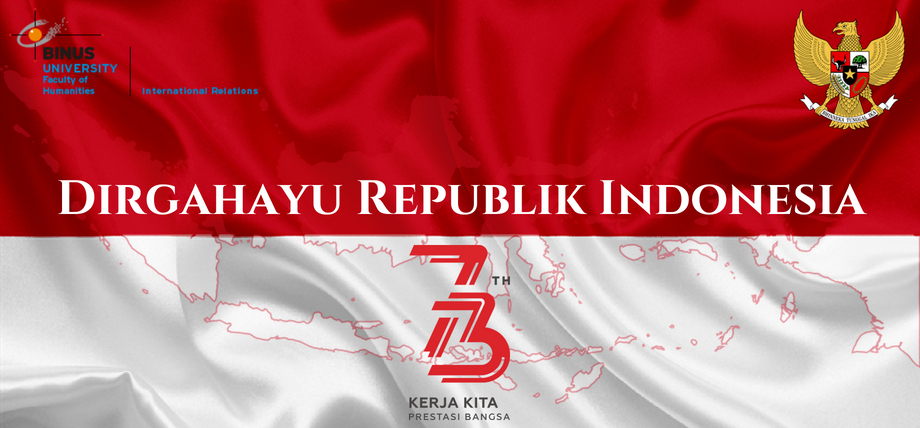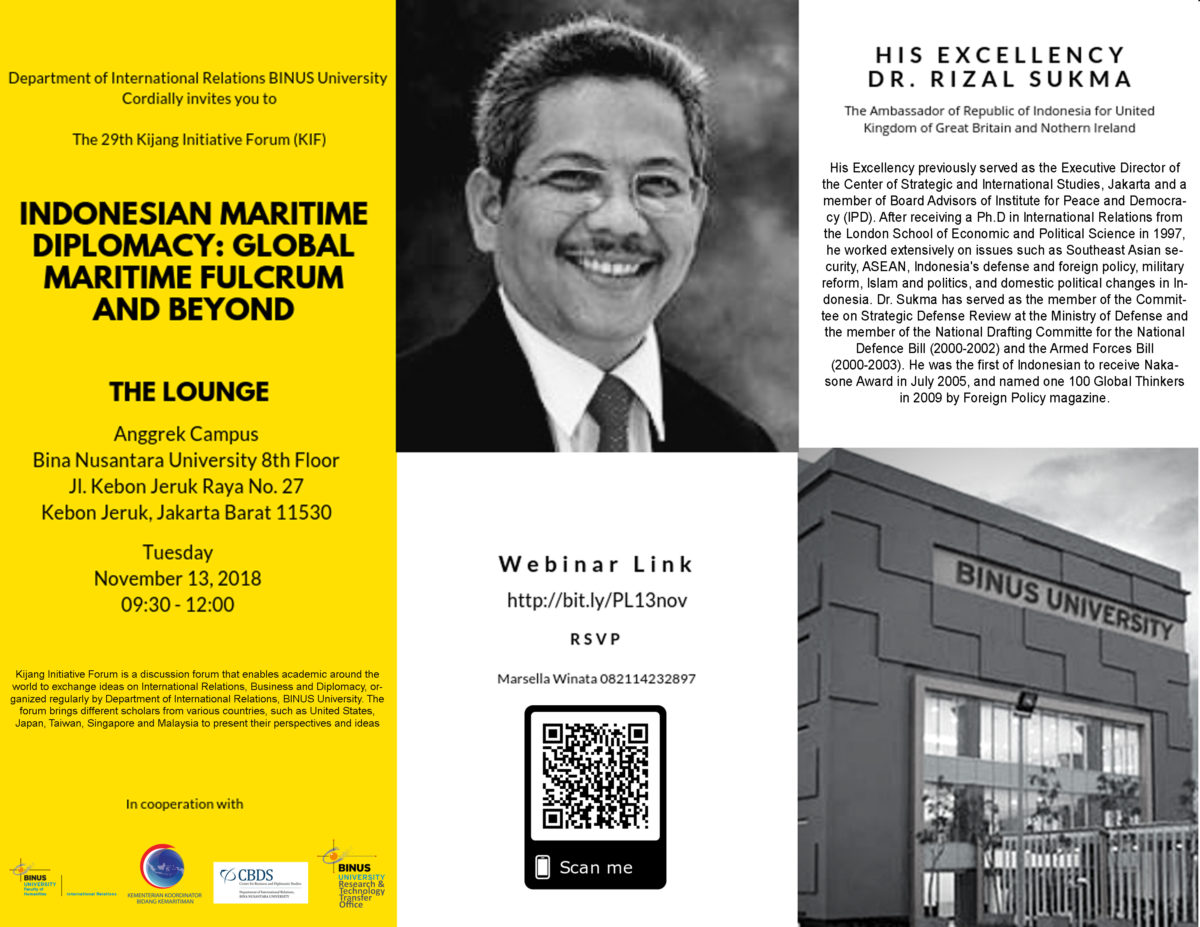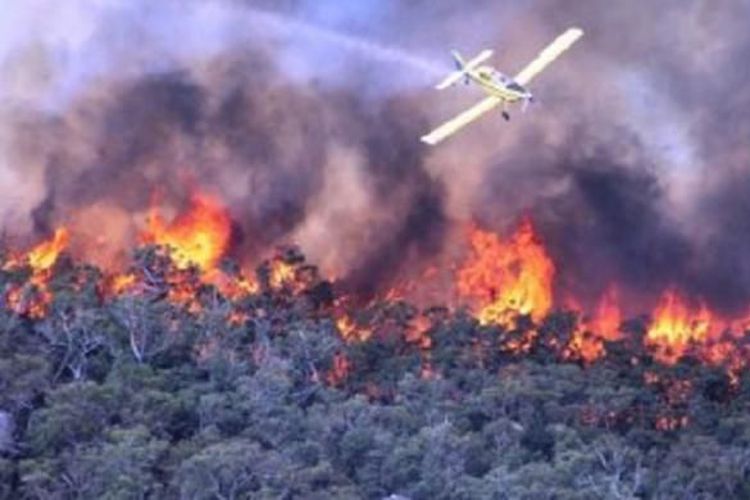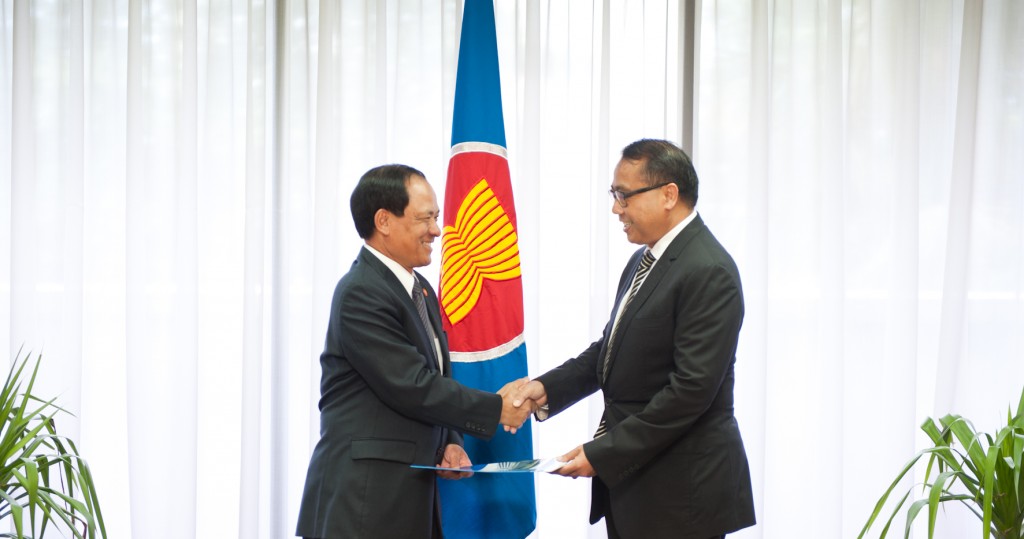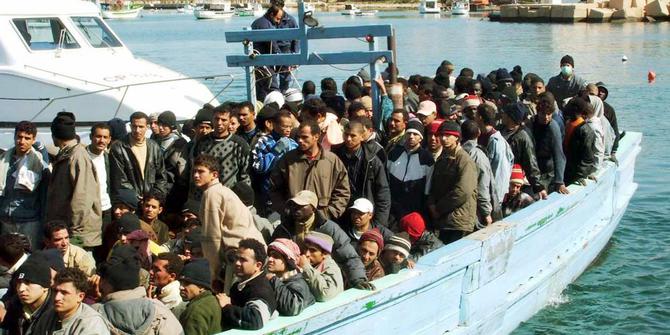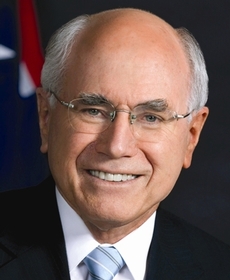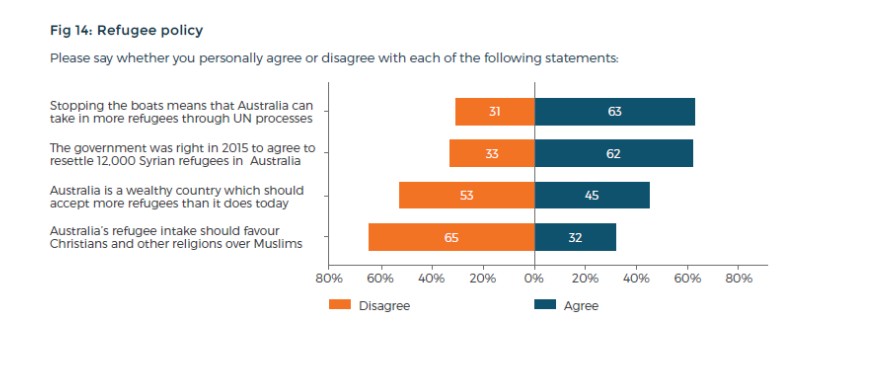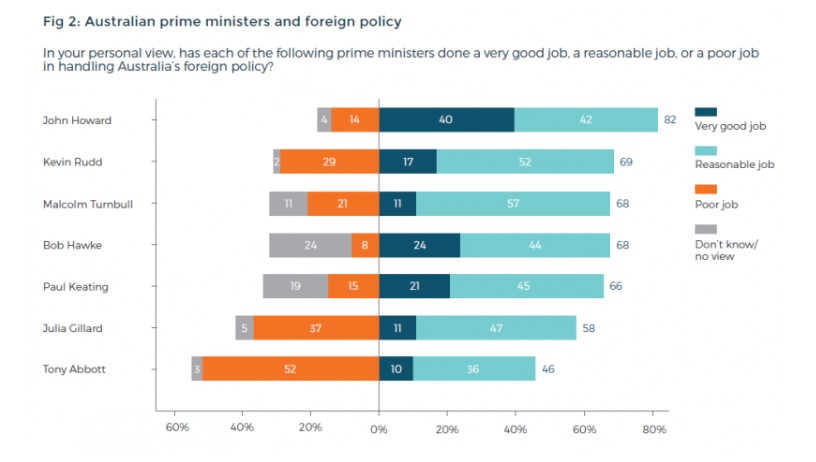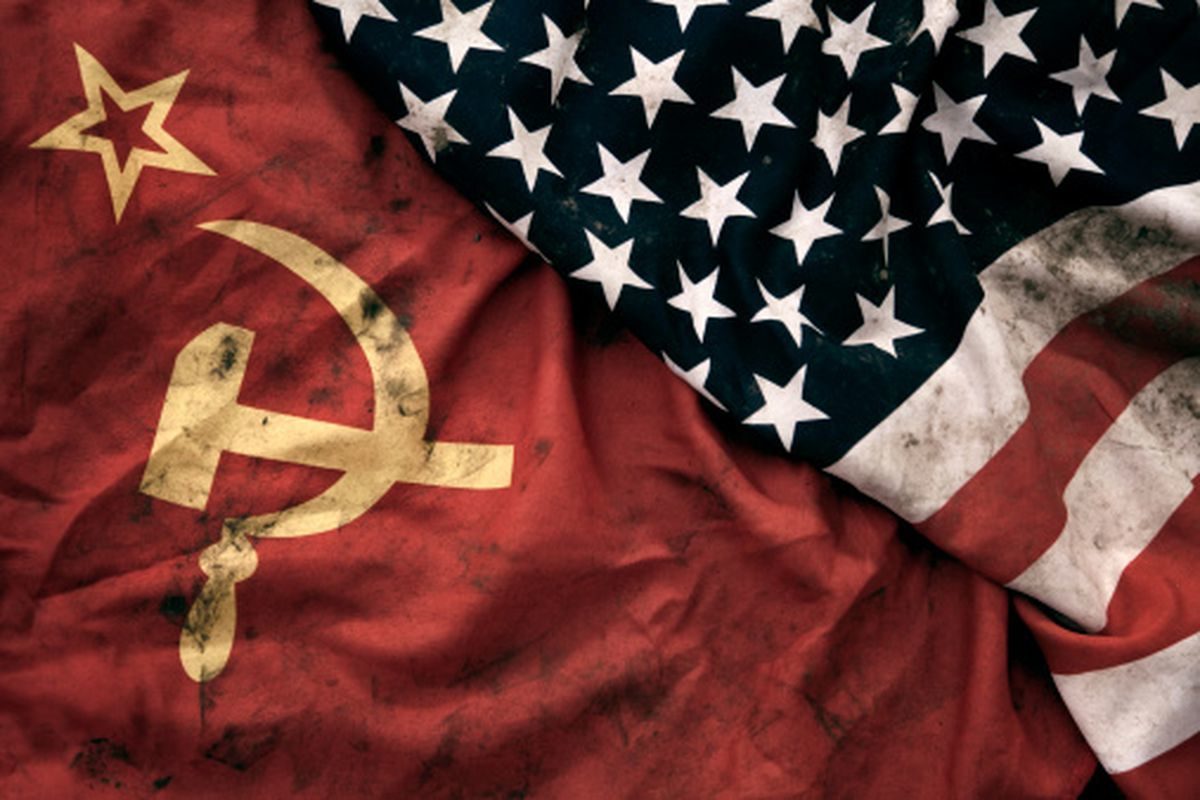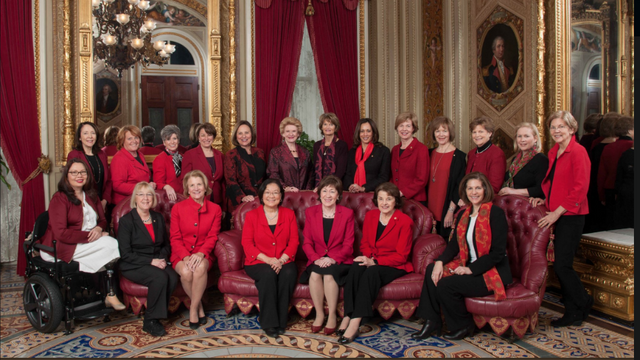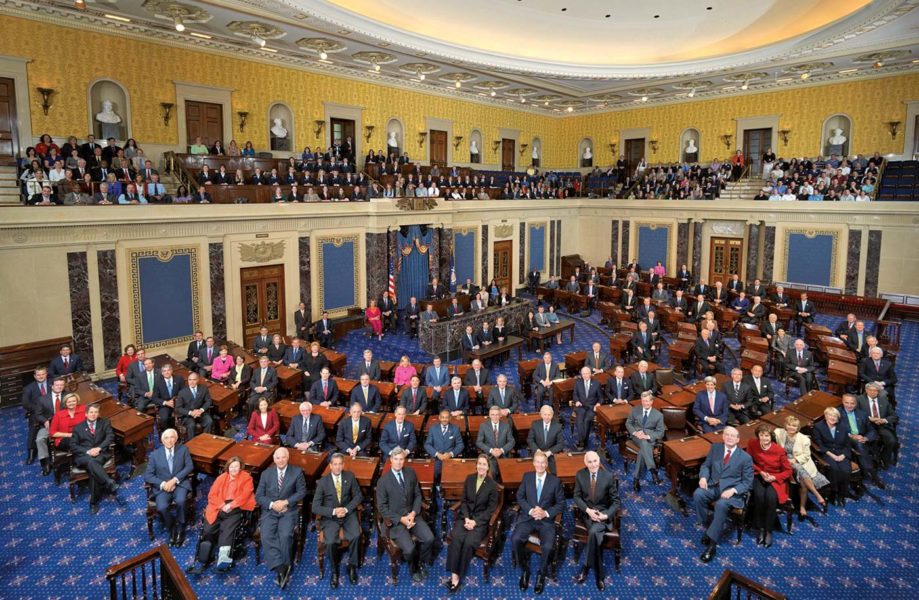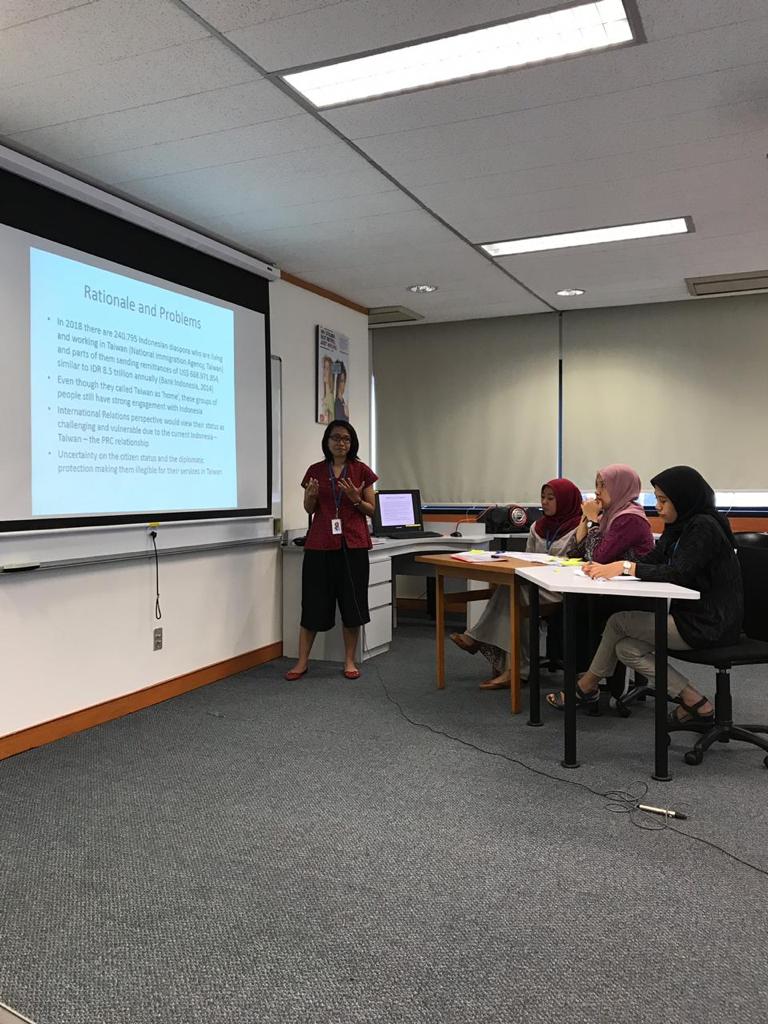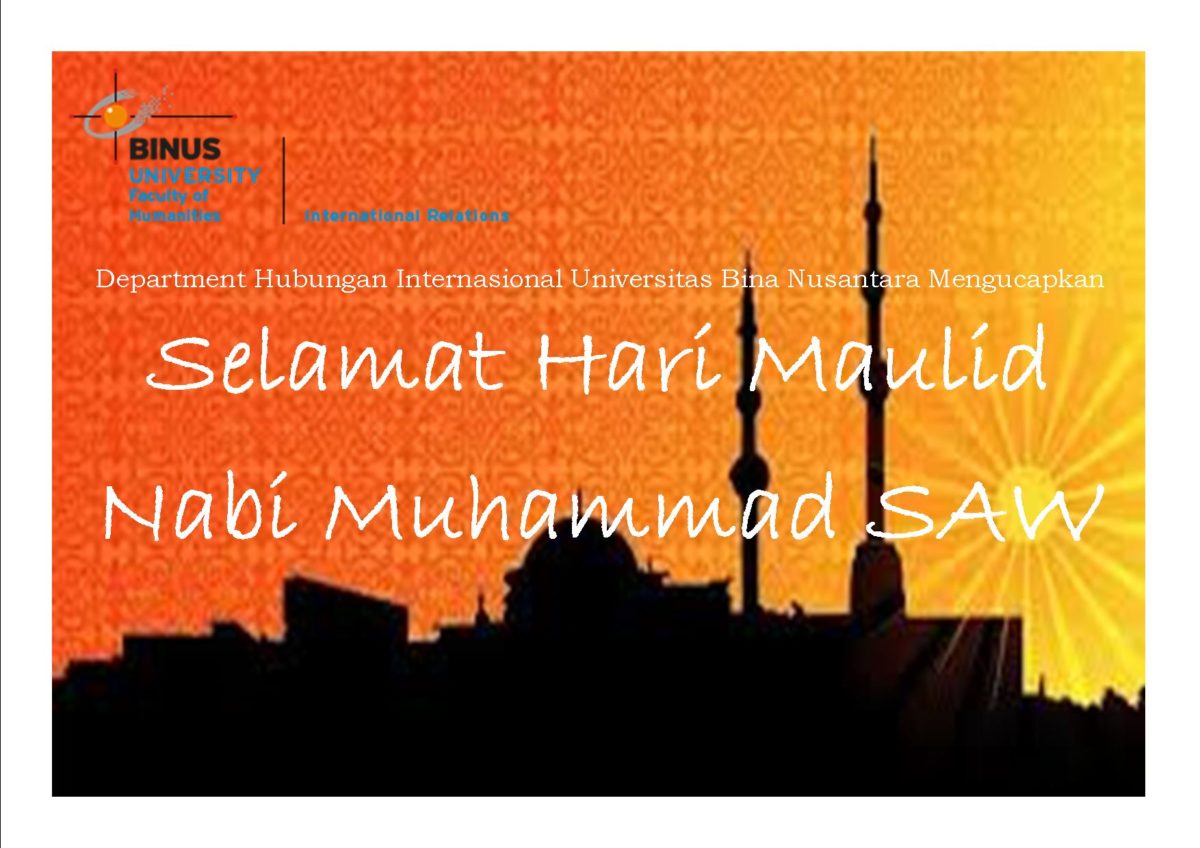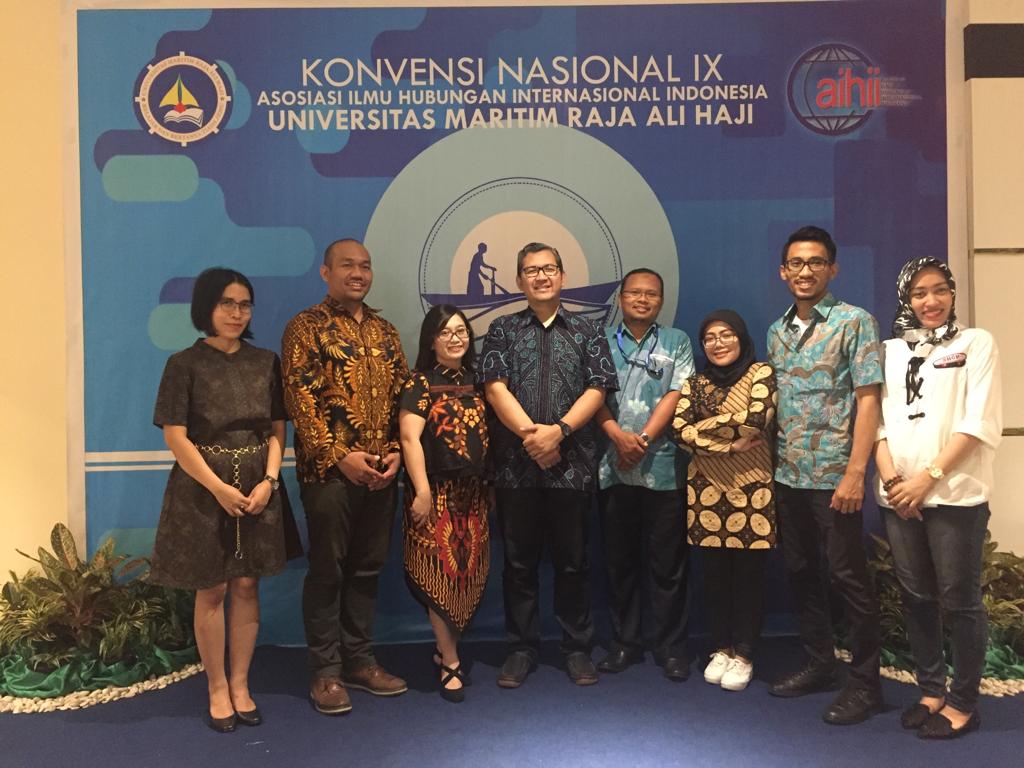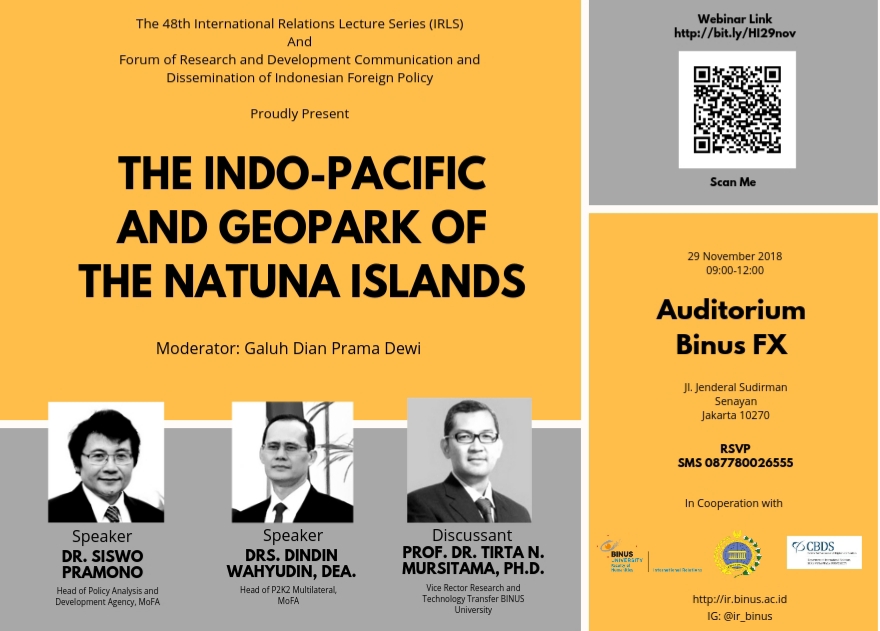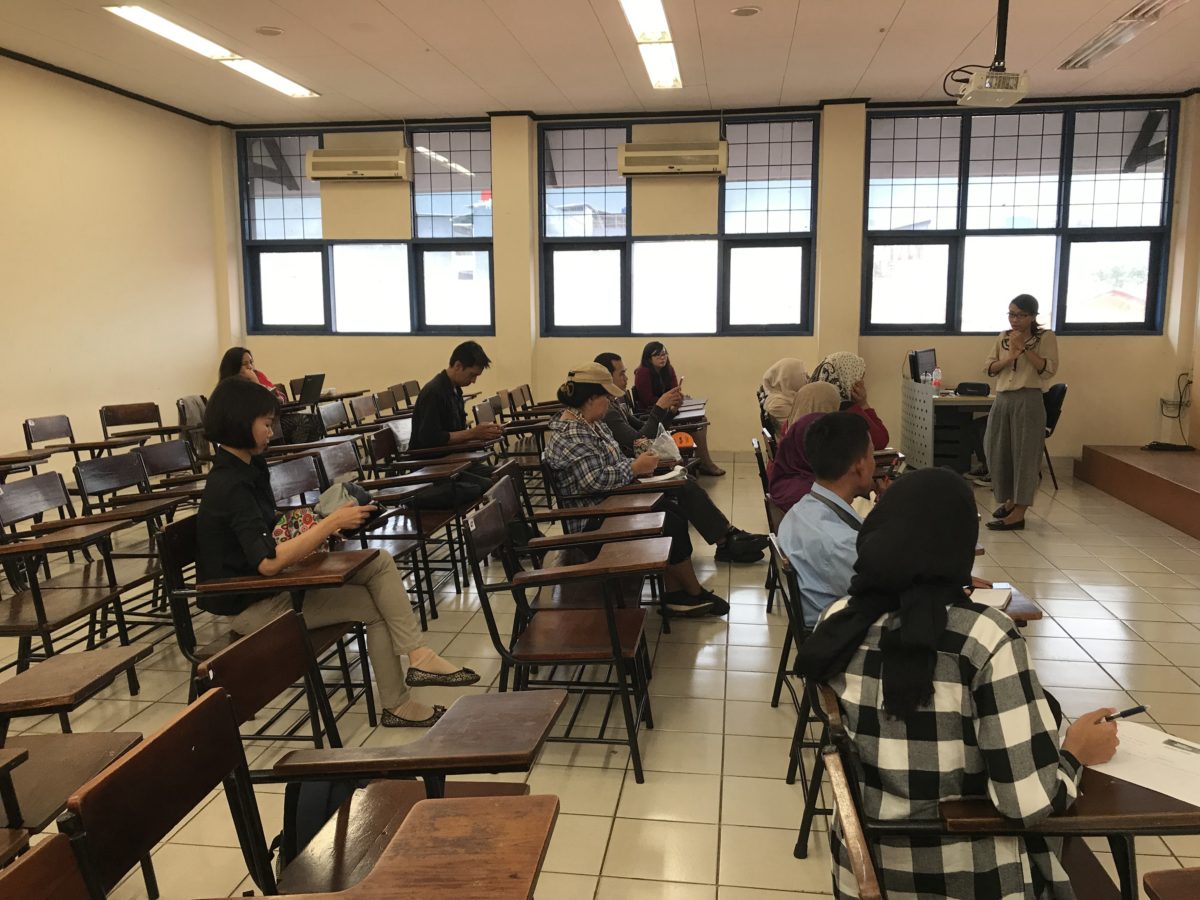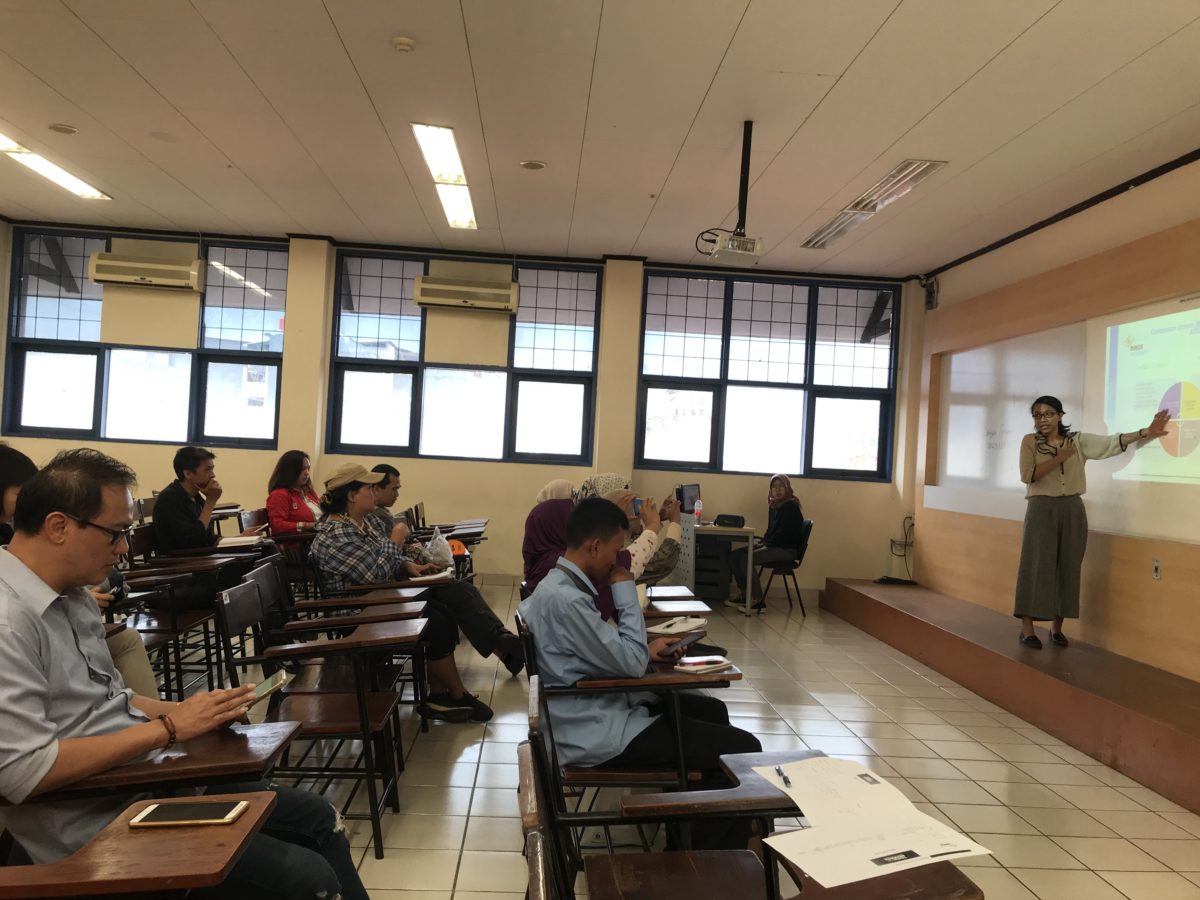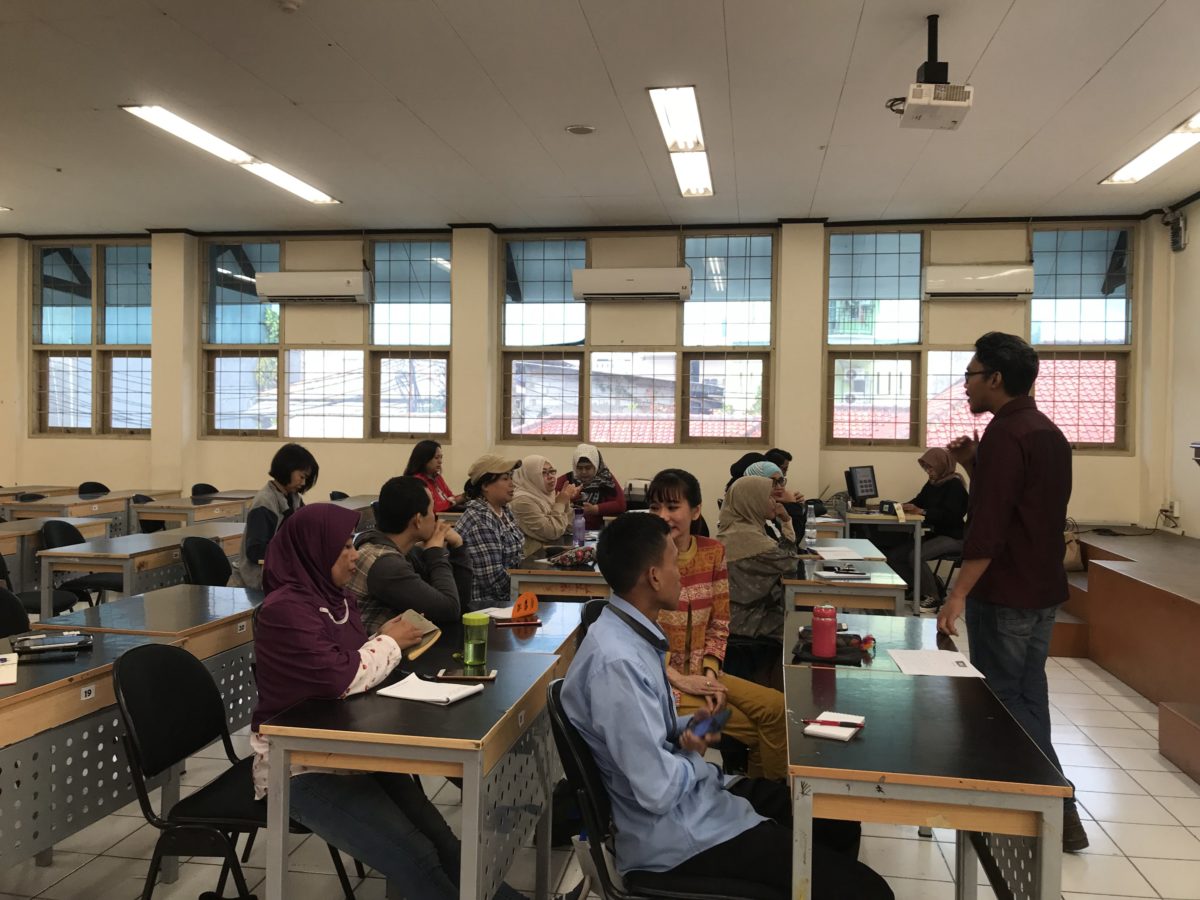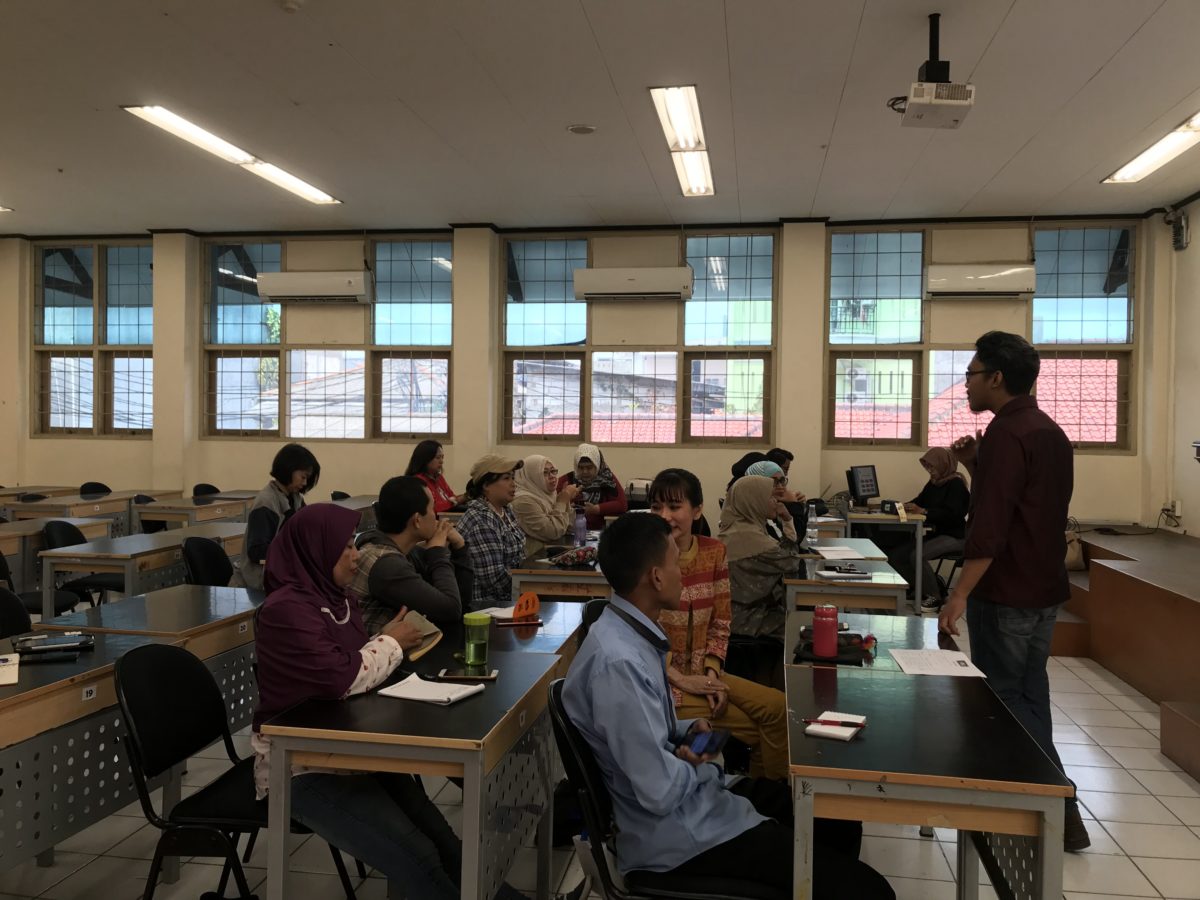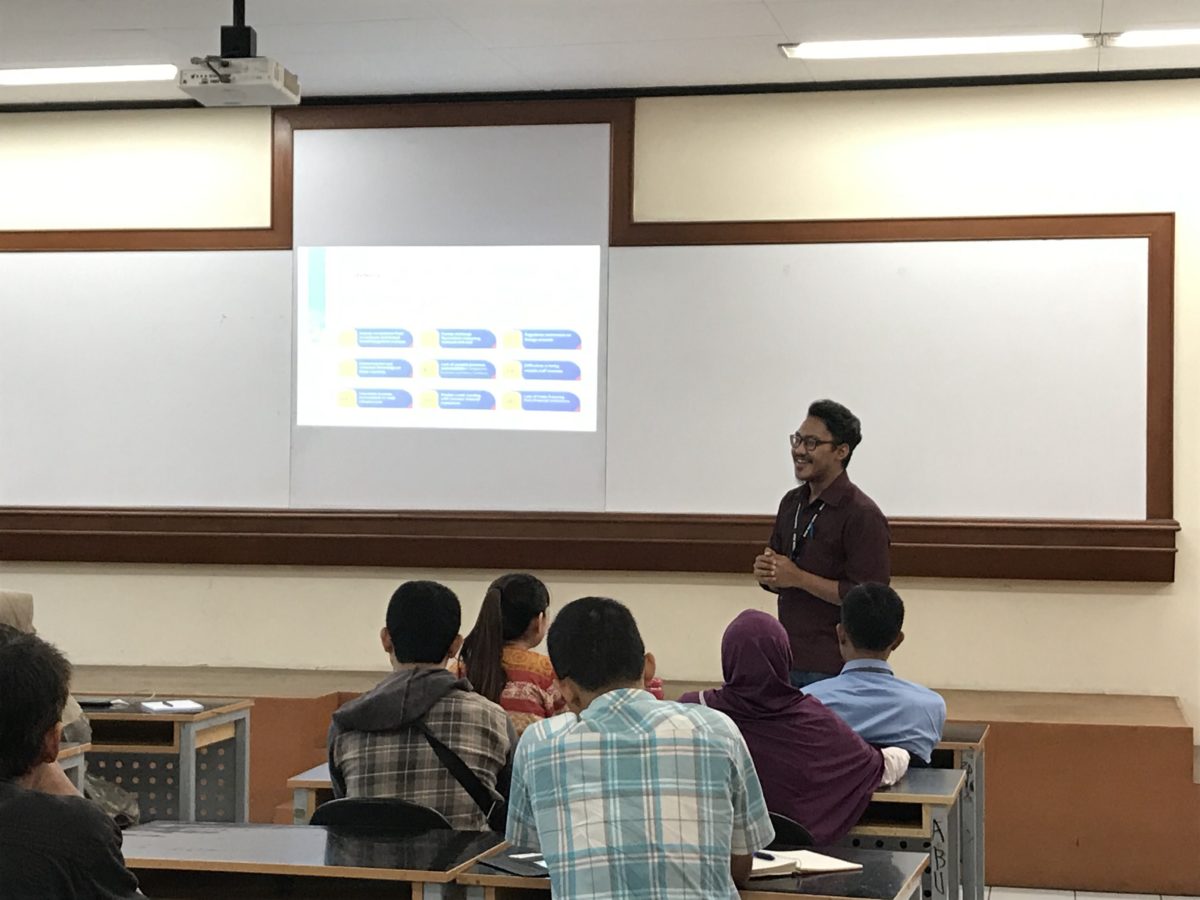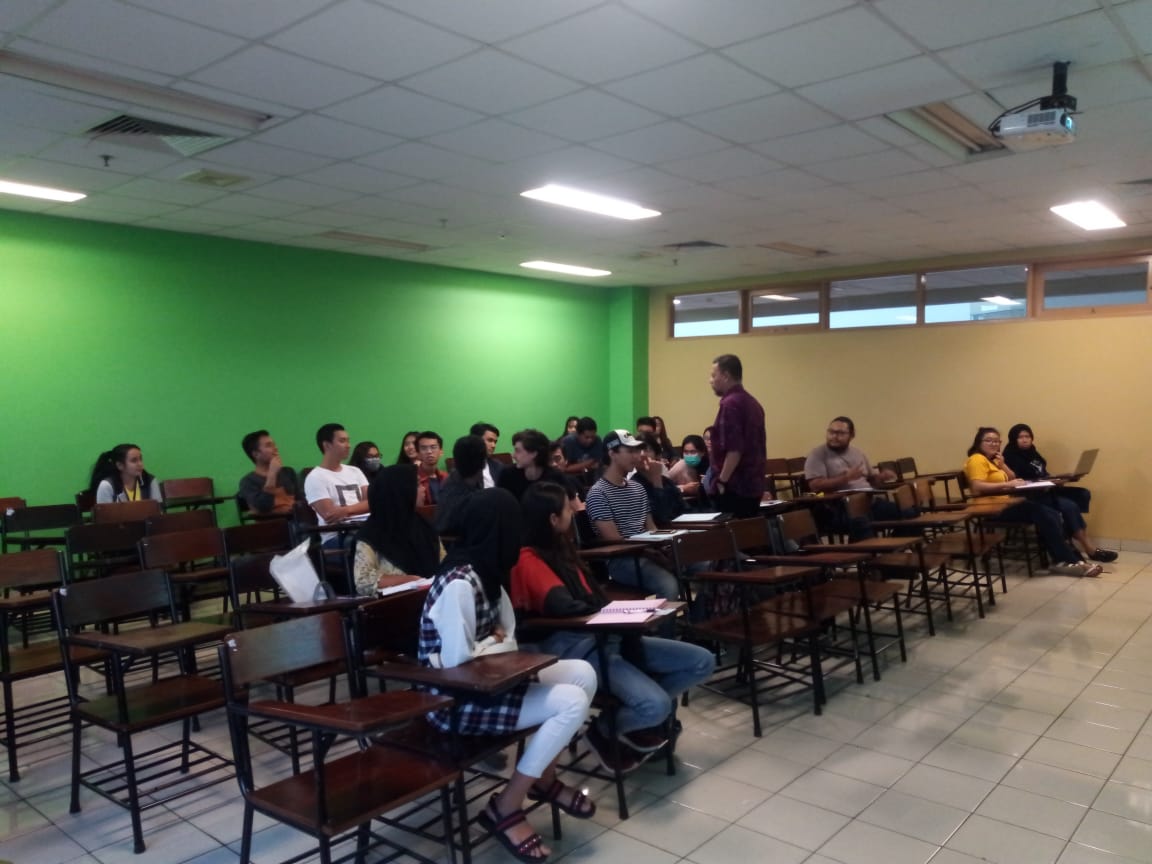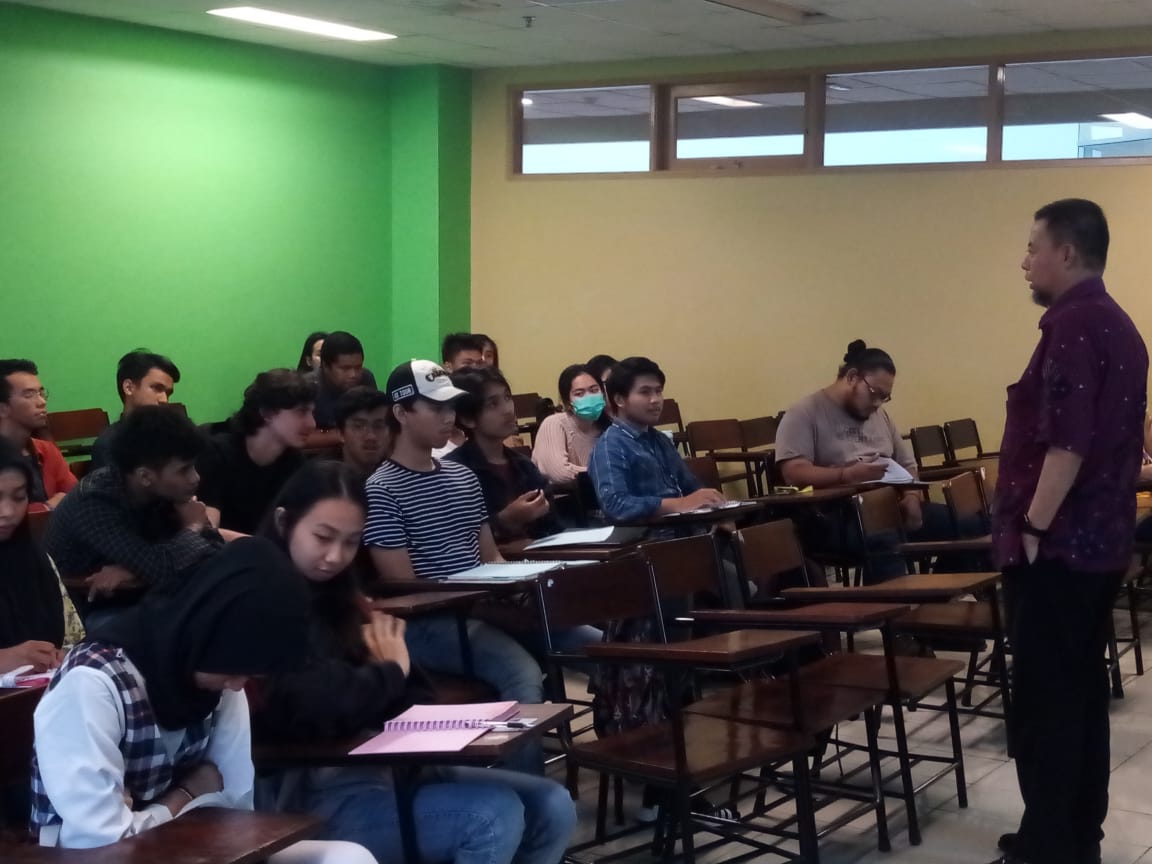Deskripsi
Semenjak terjadinya Perang Dunia II sampai saat ini, persoalan imigran merupakan salah satu hal yang menjadi pusat perhatian bagi dunia global bahkan sampai menjadi tantangan bagi beberapa negara. Dalam 50 tahun, jumlah dari imigran yang tersebar di beberapa negara berdasarkan data statistik yang diberikan oleh Anup Shah dalam karyanya tahun 2008, bagian Introduction – Worldwide Immigrants Statistics, mengatakan bahwa 40% imigran berada di negara-negara berkembang, 60% berada di negara-negara maju termasuk 20% berada di Amerika Serikat, 33% berada di Eropa dan 7% lainnya berada di negara-negara maju. Sementara itu, negara-negara yang menjadi tujuan para imigran internasional adalah Amerika Serikat, Perancis, Jerman, Inggris, Selandia Baru, Kanada, dan Australia.
Australia yang merupakan salah satu negara maju yang mampu memberikan kesejahteraan terhadap warga negaranya. Namun sebagian besar warga masyarakat Australia memandang bahwa jumlah imigran yang memasuki negara Australia akan semakin bertambah seiring pergantian tahun, membuat Perdana Menteri Australia ke-25, John Winston Howard mengeluarkan 3 perangkat kebijakan luar negeri disebut sebagai “3 distinct sets of policy spaces”, yang dilihat banyak pihak bahwa kebijakan Howard terhadap imigran kurang ramah dan dianggap sebagai kebijakan luar negeri yang buruk, namun hal tersebut tidak menghalangi Howard untuk tetap berpegang kepada kebijakan yang sudah diputuskan demi melindungi negaranya.
Latar Belakang
Semenjak terjadinya Perang Dunia II sampai saat ini, imigran merupakan salah satu hal yang menjadi pusat perhatian bagi dunia global. Imigran juga merupakan tantangan bagi beberapa negara, karena memengaruhi pengambilan keputusan kebijakan luar negeri masing-masing negara. Terkadang retorika politik dan perdebatan dalam publik tentang imigran dapat membatasi pandangan kita, dan selama dekade kedua dalam abad ke-21, terdapat sekitar 3,3% atau setara dengan 244 Juta jiwa yang termasuk sebagai imigran internasional dari populasi dunia.
Dalam 50 tahun, jumlah dari imigran yang tersebar di beberapa negara sekitar 191 Juta jiwa dan berdasarkan data statistik yang diberikan oleh Anup Shah dalam karyanya tahun 2008, bagian Introduction – Worldwide Immigrants Statistics, mengatakan bahwa 40% imigran berada di negara-negara berkembang, 60% berada di negara-negara maju termasuk 20% berada di Amerika Serikat, 33% berada di Eropa dan 7% lainnya berada di negara-negara maju. Imigrasi memang memiliki dampak negatif dan positif bagi sebuah negara, dan untuk memberikan tanggapan, pada tanggal 14 Desember 1950 dunia internasional membentuk United Nations High Commissioner of Refugee (UNHCR) yang memiliki tujuan untuk melindungi dan membantu para pengungsi dari seluruh dunia (UNHCR, 2001). Disamping UNHCR, terdapat pula organisasi internasional yaitu the Global Commission on International Migration yaitu pembentukan kelompok instistusi antar-lembaga tingkat tinggi yang terlibat dalam kegiatan terkait imigrasi. Kemudian pada bulan April 2003, Sekretaris Jenderal Perserikatan Bangsa-Bangs (PBB), Koffi Annan membentuk GMG (Global Migration Group) berfokus untuk mempromosikan penerapan yang lebih luas dari semua instrumen dan norma internasional dan regional terkait dengan migrasi, dan untuk mendorong penerapan pendekatan yang lebih koheren, komprehensif dan lebih terkoordinasi dengan isu migrasi internasional. (Group, 2006) Sementara itu, negara-negara yang menjadi tujuan para imigran internasional adalah Amerika Serikat, Perancis, Jerman, Inggris, Selandia Baru, Kanada, dan Australia.
Australia merupakan salah satu negara maju yang mampu memberikan kesejahteraan terhadap warga negaranya. Jalur masuk Imigran biasanya melalui jalur udara, dimana para imigran yang masuk, datang dengan menggunakan pesawat yang mengharuskan para imigran untuk melengkapi dokumen-dokumen resmi terkait persoalan imigrasi, dan jalur boat people, para imigran yang datang menggunakan perahu sering disebut pencari suaka atau asylum seeker dengan tujuan utama yakni memperoleh suaka di Australia. (Phillips, 2015)
Salah satu lembaga yang memiliki tanggung jawab terhadap permasalahan terkait imigrasi di Australia yaitu Department Immigration and Citizenship (DIAC) menyatakan bahwa para imigran yang datang dengan kapal (boat people) dikategorikan sebagai imigran yang ilegal atau imigran gelap dimana selanjutnya para imigran ini disebut sebagai Irregular Maritime Arrivals (IMAS). (Katz, Powell, Gendera, Deasy, & Okerstrom, July, 2013). Hal ini muncul semenjak terjadinya insiden terorisme yang menyerang Gedung World Trade Centre (WTC) di Amerika Serikat pada tanggal 11 September 2001, dimana bersamaan dengan adanya insiden kapal Tampa, kapal ilegal berisikan 434 calon pengungsi yang berasal dari Afghanistan, Pakistan, dan Sri Lanka yang memasuki wilayah Australia dan diusir oleh militer Australia karena dianggap akan mengancam stabilitas negara tersebut. (Albrechtsen, 2015).
![]() Source: Merdeka.com
Source: Merdeka.com
Sebagian besar warga masyarakat Australia memandang bahwa jumlah imigran yang memasuki negara Australia akan semakin bertambah seiring pergantian tahun. Menurut hasil penelitian The Lowy Institute Poll: Immigration and Refugees, khususnya perbandingan pada tahun 2014 dan 2017, menunjukkan bahwa masyarakat Australia yang pada mulanya menilai “Too High” dengan total 37% suara dan “Too Low” dengan 14% suara, bertambah pada tahun 2017 dengan menggunakan indikator yang sama yaitu“Too High” dengan presentase 40% dan “Too Low” dengan 18% jumlah suara. (The Lowy Institute Poll: Immigration and Refugees, 2017)
Australia memiliki 3 perangkat kebijakan luar negeri disebut sebagai “3 distinct sets of policy spaces”, salah satunya adalah ruang kebijakan ke-2 yang didefinisikan sebagai kebutuhan aktual masyarakat yang dipengaruhi oleh berbagai macam peristiwa di luar perbatasan. Hal ini mengacu pada berbagai ruang kebijakan (policy spaces) yang sering kali menjadi tanggung jawab utama berbagai departemen pemerintahan. Dalam ruang kebijakan kedua ini, Australia memandang bahwa Imigrasi merupakan salah satu bagian dari ruang kebijakan yang memiliki dimensi eksternal bersifat permanen. (Gyngell & Wesley, 2003)
Kebijakan imigrasi Australia telah mengalami berbagai macam perubahan selama 65 tahun. (Spinks, 2010). Masing-masing Perdana Menteri Australia memiliki perbedaan terhadap kebijakan luar negerinya terhadap imigran yang dipengaruhi oleh level internasional dan level domestik, level individu juga sangat berpengaruh dalam setiap keputusan yang diambil. Seperti halnya dengan mantan Perdana Menteri John Winston Howard (1996–2007) yang dikenal sebagai pemimpin berkarakter tegas terlihat dari pengambilan sikap Australia pada masa pemerintahannya yang menjadi lebih proteksionis terhadap imigran dan membuat pandangan masyarakat Australia berubah untuk menerima imigran. Pengaruh besar Howard juga mampu membuat masyarakat Australia melakukan aksi-aksi penolakan terhadap gelombang imigran. Hal ini dapat dilihat dalam pidato kampanye kebijakan imigran Howard yang mengatakan bahwa, “We will decide who comes to this country, and the circumstances in which they come.” (Phippen, 2016).
Indikator dalam Analisa Kebijakan Luar Negeri
Lalu Bagaimana analisa model teori Idiosinkratik terhadap kebijakan luar negeri Perdana Menteri Australia, John Howard (1996-2007) dalam Imigran Gelap di Australia? Dalam Teori Idiosikratik, model analisa ini memengaruhi aktor individu dalam pengambilan keputusan kebijakan luar negeri, dikenal dengan istilah persepsi elit dan didefinisikan sebagai hal yang melekat pada seseorang (pemimpin/leader). Teori ini dianggap sebagai sebuah level analisa yang paling dasar, namun fundamental karena bagaimana sistem internasional, negara, dan masyarakat terbentuk tidak lepas dari level individu yang menyusunnya. Secara umum, idiosinkratik adalah sebuah aspek yang dimiliki oleh pembuat keputusan seperti nilai, bakat, dan pengalaman sebelumnya yang mempengaruhi proses pengambilan keputusan atau kebijakan yang dilakukannya. Indikator-indikator yang penulis gunakan dalam menganalisa topik yang dipilih yakni berdasarkan model milik Alex Mintz, dan Rourke dalam karyanya “Level of Analysis and Foreign Policy” – Chapter 3 (Individual-Level Analysis).
Dalam buku yang berjudul “Understanding Foreign Policy Decision Making” karya Alex Mintz dan Karl DeRouen Jr. tahun 2010, Alex Mintz membahas 3 indikator penting yang ia masukkan ke dalam model analisa Idiosinkratik, seperti:
Kepribadian Pemimpin (Leader’s Personality)
David Winter (2003,110) mendefinisikan bahwa kepribadian seseorang merupakan integrasi proses yang berpola individual dari persepsi, ingatan, penilaian, pencarian tujuan, dan ekspresi dan regulasi emosional. dan kepribadian juga membentuk seseorang pada saat dia berhadapan dengan emosinya dengan 4 elemen penting dalam kepribadian seseorang yang menurut Winter (2003, 115-117) terbagi ke dalam temperamen yaitu komponen perilaku yang dapat diamati seperti tingkat energi dan neurosis sedangkan konteks sosial berhubungan dengan faktor-faktor seperti gender, kelas, ras, budaya, etnis, dan generasi lalu kognisi yaitu semua faktor tentang kepercayaan, nilai, dan perilaku dan motif yaitu tujuan-tujuan yang ingin dicapai dan mekanisme pertahanan. (Mintz & Jr, 2010)
Gaya Kepemimpinan (Leadership Style)
Ketika menganalisa gaya kepemimpinan seorang presiden di suatu negara, hal tersebut dapat membantu kita untuk memahami lebih dalam mengapa beberapa keputusan tertentu dibuat oleh seorang pemimpin dan mengapa tindakan-tindakan alternatif tidak diambil. Alex Mintz membagi berbagai macam gaya kepemimpinan menjadi:
Goal-driven vs Context-driven
Goal-driven cenderung lebih menantang kendala-kendala yang mungkin dihadapinya dalam mengambil sebuah keputusan kebijakan luar negeri. Biasanya pemimpin goal-driven tidak terbuka terhadap informasi baru, sementara pemimipin context-driven cenderung mencari informasi baru. (Mintz & Jr, 2010)
Task-oriented vs Task-motivated
Gaya kepemimpinan task-oriented tidak mungkin mengubah posisi atau ideologi mereka. Sedangkan pemimipin task-motivated, cenderung kurang membutuhkan koalisi internasional atau domestik yang luas sebelum mengambil tindakan dan dalam mempertahankan kebijakan. (Mintz & Jr, 2010)
Task-oriented vs Context-Oriented
Dapat dianalisa apakah seorang pemimipin memiliki gaya kepemimpinan task-oriented atau context-oriented dari: a) Apakah pemimpin menerima kendala politik; b) Keinginan pemimpin untuk menerima informasi baru; dan c) Apakah pemimpin berfokus pada masalah atau berfokus pada hubungan (Mintz & Jr, 2010)
Tipe-tipe Pemimpin: Crusader, Strategic, Pragmatic, Incremental, dan Charismatic
Crusader
Pemimpin yang menantang batasan politik namun tertutup akan informasi-informai baru. Pemimpin tipe ini pada dasarnya tidak membatasi diri mereka dalam mengejar visinya tentang dunia. Tipe pemimpin crusader terbagi lagi menjadi 2 yakni: a) Expansionist, dimana merupakan seorang individu yang tidak ingin kehilangan kontrol. Mempunyai keinginan untuk memiliki kontrol yang besar (high need for power), memiliki kemampuan yang rendah adanya beberapa alternatif pilihan dalam pembuatan keputusan (low conceptual complexity), punya rasa nasionalisme yang tinggi terhadap negaranya (high nationalism), tidak mementingkan arti hubungan pertemanan (low need for affiliation). b) Evangelist lebih nyaman dengan hubungan dan pengaruh terhadap tujuan mereka dalam gaya yang tidak berbeda dengan pembawa berita injil seperti seorang evangelis.
Strategic
Pemimpin dalam tipe seperti ini mengetahui apa yang diinginkannya dan akan mencari informasi untuk mencapai tujuan-tujuannya tersebut. Secara politis memiliki keberanian namun tetap berhati-hati dalam mewujudkan aspirasi ambisius yang dimilikinya. (Mintz & Jr, 2010)
Pragmatic
Seorang pemimpin yang menghargai kendala-kendala politik yang dihadapi namun tertutup terhadap informasi-informasi. Dalam tipe Pragmatic, terbagi menjadi 4 tipe lagi yakni:
Directive dan Consultative
Salah satu ciri dari seorang pemimpin Directive yakni berfokus pada masalah ketika diperhadapkan dengan tantangan politik. Sementara pemimpin consultative lebih memfokuskan dirinya pada hubungan dan oleh karena itu akan hati-hati melacak posisi elit lainnya. (Mintz & Jr, 2010)
Reactive dan Accommodative
Pemimipin dengan tipe reactive cenderung termotivasi untuk fokus pada masalah yang terjadi dan bijaksana dalam setiap pengambilan keputusan kebijakan luar negeri. Hal ini dilakukan dengan cara menenukan berbagai pilihan dan apakah konstituensi politik akan menerima serta setiap masalah yang muncul dikelola sesuai dengan pertimbangan pilihan yang memenui syarat politik. Sedangkan pemimpin yang memiliki tipe Accommodative lebih memilih untuk fokus pada bagaimana membangun hubungan yang baik dengan negara lain dimana sering disebut sebagai “bridge-builders” dimana mereka berusaha menciptakan konsensus dan meningkatkan akuntabilitas (pertanggungjawaban). (Mintz & Jr, 2010)
Incremental
Pemimpin yang dihadapkan dengan masalah atau batasan yang menantang, terbuka untuk informasi.
Charismatic
Seorang pemimpin yang menginginkan hubungan juga kendala-kendala menantang dan terbuka untuk informasi (juga strategis), tetapi dalam hal motivasi berfokus pada hubungan dengan mendorong orang lain untuk bertindak. (Mintz & Jr, 2010)
5 indikator yang sangat berpengaruh terhadap berbagai macam keputusan kebijakan luar negeri yang diambil oleh seorang individu, yakni:
Personality
Bagaimana orientasi atau pandangan seorang pemimpin terhadap diri sendiri dan juga orang lain. Kepribadian positif memiliki ego yang cukup kuat untuk menikmati atau paling tidak menerima lingkungan politik yang diperdebatkan. Namun sebaliknya, kepribadian negatif cenderung merasa terbebani, bahkan disalahgunakan, oleh kritik politik. Kepribadian seorang individu juga dapat terbentuk dari beberapa faktor, seperti: faktor lingkungan dan sosial. (Rourke)
Physical dan Mental Health
Kesehatan fisik dan mental seorang pemimpin dapat menjadi faktor penting dalam pengambilan keputusan kebijakan luar negeri karena terkadang seorang pemimpin juga menderita masalah psikologis. (Rourke)
Ego/Personality dan Ambition
Ego seorang pemimpin dan ambisi pribadi juga dapat memengaruhi kebijakan luar negeri yang diambil oleh seorang pemimpin. Apakah dalam mengambil sebuah kebijakan, pemimpin tersebut terlihat lebih mengedepankan ego dan juga ambisinya dalam mencapai sebuah tujuan dari keputusan yang diambil. (Rourke)
Political History dan Personal Experiences
Dipengaruhi oleh pengalaman pribadi dari seorang pemimpin. Latar belakang politik yang dimilikinya juga membentuk cara seorang pemimpin dalam berpikir tentang keputusan terbaik yang harus diambil dimana hal ini terkait dengan dunia politik. (Rourke)
Perceptions dan Operational Reality
Menggambarkan bagaimana seorang pemimpin memandang sebuah masalah yang dihadapi sebelum mengambil sebuah keputusan untuk kebijakan. Persepsi memainkan peran kunci dalam kebijakan karena mereka membentuk realitas operasional. Dalam arti lain, pembuat kebijakan cenderung bertindak berdasarkan persepsi, apakah pandangan mereka akurat atau tidak. (Rourke)
Dilantik Menjadi Perdana Menteri
![]() Source: wsb.com
Source: wsb.com
Lalu semenjak tanggal 11 Maret 1996 hingga 3 Desember 2007, John Winston Howard yang berasal dari Partai Liberal resmi menjadi Perdana Menteri Australia ke-25. Semasa pemerintahannya, Howard lebih mengarah kepada kepentingan nasional Australia dan terdapat beberapa kebijakan luar negeri yang dibuatnya seperti bagaimana imigrasi menjadi tidak sah, arus pengungsi, menurunkan kualitas lingkungan, narkotika dan kejahatan transnasional yang dapat mengurangi risiko konflik global yang bisa saja terjadi. Menurut Ravenhill dalam buku karyanya tahun 1998, berpendapat bahwa John Howard terlihat tidak tertarik dan tidak merasa nyaman dengan kepentingan-kepentingan luar negeri. Bagaimanapun juga, keadaan itu berubah dengan cepat seperti yang dikatakan oleh Smith dan Lowe dalam buku mereka tahun 2005 bahwa pemerintah pasti menghadapi berbagai tantangan baru (a range of new challenges) di dalam sebuah dunia yang merupakan kombinasi antara tekanan-tekanan dari dalam dan luar (a new combination of internal and external pressures). (McPhail, 2007)
Kebijakan Luar Negeri terkait Imigran Gelap di Australia
Howard yang memiliki rasa nasionalisme yang tinggi dan ingin melindungi Australia dari para imigran gelap, menjadikan dirinya mengeluarkan beberapa kebijakan luar negeri terkait imigran, seperti:
Pacific Solution
Sebuah kebijakan pertama yang membuat para imigran dengan kapal (boat people) dilarang keras untuk memasuki daratan Australia, namun dipindahkan ke pulau-pulau kecil seperti Nauru, Papua Nugini, dan Pulau Manus, letaknya 800 Km dari Port Moresby, ibukota Papua New Guinea. Kebijakan ini dinilai mampu untuk mengurangi jumlah pengungsi atau imigran yang datang ke Australia. Sementara Para imigran yang datang ke Australia diperlakukan kurang baik sebagai tahanan di Pulai Nauru, negara kepulauan berada di Mikronesia, Pasifik Tengah. Meskipun Howard mendapat protes dari dunia internasional, namun sikap tegasnya untuk melindungi kepentingan nasional Australia karena hal ini sudah terbukti mengurangi para imigran yang memilih untuk tinggal di Australia. (International, 2002, pp. 1-6)
Relex Operation
Dalam kebijakan ini, Royal Australian Navy (RAN) diberikan perintah untuk mencegat Suspected Illegal Entry Vessels (SIEVs), jika mereka ingin memasuki zona tambahan Australia yang berjarak 24 mil laut dari pantai Australia, RAN akan mengarahkan kembali ke Indonesia. Pemerintah mengeluarkan dana yang tidak sedikit untuk kebijakan ini untuk mengelola kedatangan kapal ilegal mencapai $10,3 Miliar. Banyak pencari suaka yang masuk ke Australia tanpa visa kecewa akan kebijakan ini. (International, 2002, pp. 6,8)
Temporary Protection Visa
Para imigran yang datang ke Australia tanpa visa resmi akan diberikan visa perlindungan sementara (Temporary Protection Visa – TPV) berupa izin untuk tinggal mendiami wilayah Australia dalam waktu tertentu namun mereka tidak terjamin untuk dapat tinggal di Australia secara permanen. Namun kebutuhan dasar seperti kesehatan serta akses pendidikan tidak diberikan secara utuh bahkan kesempatan kerja bisa didapatkan oleh imigran, mereka pun tidak dapat berkumpul dengan keluarganya sebagai bentuk dari hukuman yang diberikan pemerintah jika mereka tidak memiliki visa resmi. Walaupun ada beberapa imigran yang mendapat Permanent Protection Visa, namun tetap tidak ada kesempatan bagi mereka untuk membawa keluarga. (ASRC)
Menurut hasil sebuah Lembaga Survey, The Lowy Institute Poll 2016 terkait Refugees and Immigration: Attitudes to Australia’s refugee policies oleh Alex Oliver, banyak warga negara Australia yang setuju dengan kebijakan luar negeri Australia mengenai imigran dan pengungsi dimana kebijakan tersebut yaitu “Stopping the boats means that Australia can take in more refuges through UN processes” (Memberhentikan kapal-kapal berarti Australia dapat menerima lebih banyak pengungsi melalui proses PBB), dalam arti lain tidak perlu menerima imigran illegal karena pengungsi yang diterima melalui PBB akan lebih teratur. Dengan jumlah 63% warga Australia mendukung kebijakan tersebut dan hanya 31% yang tidak mendukung kebijakan tersebut.
![]() Sumber: The Lowy Institute Poll (lowyinstitute.org)
Sumber: The Lowy Institute Poll (lowyinstitute.org)
Hanya terdapat 45% warga Australia yang setuju bahwa “Australia adalah negara kaya yang harus menerima lebih banyak pengungsi daripada di masa sekarang ini”. dan 53% tidak menyetujui hal tersebut. (Oliver, 2016)
Kebijakan Sang Nasionalis terhadap Imigran Gelap di Australia
Kebijakan Perdana Menteri John Winston Howard terhadap Imigran Gelap di Australia yang datang dari berbagai negara cenderung tegas dan keras terhadap mereka, meskipun dunia internasional memandang bahwa apa yang dilakukan Howard bukanlah sebuah kebijakan yang adil dan manusiawi, namun tidak sedikit masyarakat Australia yang menilai bahwa kinerja Howard terhadap isu imigran ini adalah tindakan yang baik dalam memberi tanggapan. Kebijakan luar negeri Howard ini selain dibuat berdasarkan kepentingan nasional Australia, keputusan yang telah diambil oleh Howard juga dapat berasal dari faktor pribadi (personal factor), dimana dengan menggali lebih dalam lagi apa yang menjadi penyebab Howard bersikap tegas terhadap para imigran yang ingin menetap di Australia. Salah satu yang dapat membantu menjawab pertanyaan ini yaitu indikator-indikator yang terdapat dalam model analisa Idiosinkratik, seperti:
Personality dan Leadership Style
John Winston Howard dapat dilihat sebagai seorang individu dengan memiliki kepribadian yang tidak mudah menyerah serta ambisius, dibuktikan dengan kondisi masa mudanya yang memiliki kekurangan pendengaran. Tidak ingin menyerah begitu saja, Howard berjuang lebih keras untuk mengatasi kekurangannya tersebut dengan cara belajar secara tekun dan hal tersebut membuat ia terkenal dengan murid yang berprestasi dimana ia mendapat beasiswa nasional di masa sekolahnya. Sifat ambisius Howard yang benar-benar menyukai dunia hukum telah ditekuninya sejak duduk di bangku sekolah. Setelah lulus dari Canterbury Boys’ High School pada tahun 1956, Howard memilih jurusan Hukum di University of Sydney. Pada tahun 1961, Howard lulus dari universitas tersebut kemudian memilih untuk berlatih sebagai pengacara selama dua belas tahun. Howard juga pernah menjadi seorang pengacara di Mahkamah Agung New South Wales. Rasa ambisius Howard yang ingin terlibat lebih dalam dunia politik membawa dirinya menjadi anggota Partai Liberal pada tahun 1974, dan dipilih sebagai Menteri di bidang bisnis dan konsumer pada tahun 1975-1977, bendahara federal tahun 1977-1983, wakil pemimpin Partai Liberal pada tahun 1982 dan menjadi pemimpin koalisi oposisi kaum Liberal dengan Partai Nasional pada tahun 1985 sampai pada bulan Maret 1996, Howard selaku pemimpin Partai Liberal dinyatakan menang sebagai Perdana Menteri Australia dalam pemilihan umum yang diselenggarakan. (McPhail, 2007, pp. 82-85)
Selain itu, Howard juga merupakan seorang pemimpin yang bersifat Ekspansionis yang memiliki rasa nasionalisme yang tinggi terhadap Australia. Hal ini dapat dilihat ketika Howard mengikuti kegiatan antar sekolah seperti kompetisi debat dan kewarganegaraan. Menurut salah satu media milik Inggris, REUTERS dalam berita yang dipublikasikan secara online pada 24 November 2007 oleh James Grubel, “Australia’s Howard leaves prosperity social division”, mengatakan bahwa ketika Howard pertama kali menang dalam pemilihan umum menjadi Perdana Menteri, Howard mengatakan dalam pidatonya bahwa ia ingin seluruh masyarakat Australia merasa bahwa negara ini merupakan negara yang bisa memberikan kenyamanan bagi mereka, karena itu tidak heran mengapa Howard bersikap agresif dan tegas terhadap keputusan kebijakan yang diambil terkait imigran gelap di Australia. (Grubel, 2007)
Media Australia yang juga memberitakan tentang ambisi Howard terhadap Australia adalah ABC News yang dipublikasikan pada 3 Maret 2016 oleh Terry Barnes dengan judul “John Howard: The greayes PM of our time”. Dalam berita ini, disebutkan bahwa, “Most famously, in 1996 Howard wanted Australians to be comfortable in their own skins. When pressed aggressively by Four Corners reporter Liz Jackson about his ambitions for Australia in the year 2000, Howard simply said he wanted Australians to be “comfortable and relaxed” about their past, present and future.”. Ketika ditanya oleh salah satu repoter berita apa ambisi Howard untuk Australia pada tahun 2000, ia hanya menjawab yang diinginkan hanya masyarakat Australia merasa nyaman dan tenang tentang masa lalu mereka, masa sekarang, dan juga masa depan. (Barnes, 2016)
Howard merupakan salah satu individu yang termasuk dalam tipe pemimpin yang Direktif yakni seorang pemimpin menghormati batasan politik namun tertutup terhadap informasi-informasi yang kemungkinan diterima. Hal ini dapat dibuktikan ketika sejak kecil tumbuh dan berkembang di Australia dimana keadaan ini membawa rasa cintanya yang sangat besar pada Australia. Howard cenderung tertutup dengan informasi baru dan akibatnya informasi yang diterimanya adalah informasi yang lebih cocok dengan pandangan yang dimilikinya sampai mengikuti kegiatan-kegiatan yang mendukung keamanan Australia. Pengaruh budaya setempat membawa nilai tersendiri terhadap kebiasaan untuk memercayai sesuatu.
Gaya kepemimpinan John Winston Howard pada masa jabatannya tahun 1996–2007 telah menggambarkan bahwa Howard merupakan seorang individu Goal-Driven, dimana Howard lebih suka menantang kendala-kendala yang mungkin dihadapinya dalam mengambil sebuah keputusan serta tidak terbuka terhadap informasi-informasi baru. Hal ini dapat dilihat dari bagaimana sikap Howard terhadap para imigran yang ingin memilih Australia sebagai negara tujuan mereka, yakni menentang keras masuknya imigran gelap dan membuat beberapa kebijakan yang harus dipatuhi oleh para imigran yang ingin masuk ke wilayah Australia. Selain itu gaya kepemimpinan lain juga ditunjukkan oleh Howard dimana ia merupakan seorang pemimpin dengan pandangan konservatif karena tidak pernah mengubah nilai atau pahamnya sama sekali. Gaya kepemimpinan seperti ini disebut dengan Task-Oriented yang mana tidak mungkin mengubah posisi atau ideologi mereka. “John Howard is by far the most successful conservative politician to have held office, anywhere in the world, in the 21st century. From 1996, he won four consecutive elections, and was Liberal (ie Tory) Prime Minister of Australia until his defeat in November 2007.” (Moore, 2011)
Ego/kepribadian dan Ambisi
Berita yang dipublikasikan secara online, The Atlantic oleh J. Weston Phippen pada 29 April 2016 mengenai “Australia’s Controversial Migration Policy” memberikan bukti bahwa memang Howard lebih mengedepankan egonya dalam membuat sebuah keputusan kebijakan luar negeri, khususnya yang berkaitan dengan imigran gelap yang ingin tinggal di Australia.
“It was an election year in Australia, and Prime Minister John Howard’s Liberal Party, which holds a conservative ideology, was trailing in the polls. But on the policy-launch day of his election campaign, Howard made his stance on immigration clear: “We will decide who comes to this country, and the circumstances in which they come.” His ideas on immigration shaded him a strong leader and is credited in part with his party’s election victory that November.”
Pada saat peluncuran kebijakan dari kampanye pemilihannya, Howard mengatakan dengan jelas bahwa, “Kami akan menentukan siapa yang datang ke negara ini dan keadaan dimana mereka boleh datang.” Kebijakannya tentang imigran gelap di Australia menjadikannya seorang pemimpin yang dipandang kuat dan hal ini dipercaya sebagai salah satu faktor mengapa Howard memenangkan pemilihan partainya. (Phippen, Australia’s Controversial Migration Policy, 2016).
Karena ego dan ambisi Howard yang sangat kuat terhadap perlindungan Australia dari para imigran gelap, masyarakat Australia menilai bahwa Perdana Menteri John Howard merupakan seorang pemimpin yang paling sukses dari Perdana Menteri Australia yang lain dalam kebijakan luar negeri yang diputuskannya terutama tentang imigran. Hal ini dapat dibuktikan dari survei yang dilakukan oleh The Lowy Institute Poll 2016:
![]() Sumber: : The Lowy Institute Poll (lowyinstitute.org)
Sumber: : The Lowy Institute Poll (lowyinstitute.org)
Dari pertanyaan yang diberikan: “Dalam pandangan pribadimu, sudahkah para Perdana Menteri di bawah ini melakukan perkerjaan yang baik, pekerjaan yang masuk akal, atau pekerjaan yang buruk dalam menangani kebijakan luar negeri Australia?”. Jawaban yang diberikan oleh masyarakat Australia terhadap John Winston Howard adalah 82% mengatakan bahwa Howard telah melakukan pekerjaan yang sangat baik dan masuk akal dalam menangani kebijakan luar negeri Australia dibandingan dengan Perdana Menteri yang lain. Howard mendapatkan penilaian yang paling tinggi dari survei yang dlakukan The Lowy Institute. Bukti inilah yang menunjukkan bahwa betapa ambisius Howard dalam menciptakan Australia menjadi negara yang nyaman bagi warga negaranya.
Political History dan Personal Experiences
John Winston Howard lahir pada tanggal 26 Juli 1939 di Sydney, New South Wales. Howard merupakan putra ke-4 dari pasangan Lyall Howard dan Mona dan dibesarkan dalam keluarga yang berkecukupan, keluarganya membuka usaha sendiri. Howard juga memiliki kemandirian yang lebih daripada orang lain pada umumnya, hal ini menjadi faktor yang memunculkan citra dan sudut pandangnya tentang dunia bahwa seharusnya dunia juga bisa bersikap mandiri. Dengan permasalahan imigran di Australia yang sudah jelas akan mengantungkan hidupnya pada pemerintah Australia membuat Howard memikirkan keadaan yang seharusnya yaitu para imigran mampu bertahan di negara mereka masing-masing dan tidak mencari tempat tinggal di negara lain. Hal ini dapat dibuktikan dalam pernyataan John Howard ketika melakukan wawancara dengan Melbourne talkback radio pada 17 Agustus 2001 yang mengatakan, “Many of them are frightened to go back to those countries and we are faced with this awful dilemma of, on the one hand, trying to behave like a humanitarian decent country, on the other hand making certain that we don’t become just an easy touch for illegal immigrants.”. Howard berkata bahwa Australia tidak bisa semudah itu dalam menerima para imigran gelap yang ingin masuk ke wilayah Australia. (Wright)
Hal yang paling penting menurut John Winston Howard adalah kesejahteraan warga negara Australia, dengan pandangan konservatif yang dimilikinya menjadikannya sangat sulit untuk terbuka pada isu baru. Pandangannya terhadap keamanan negara Australia diwujudkan dalam kebijakan penahanan imigran gelap. Kecintaan Howard yang tinggi terhadap Australia meningkatkan proteksi dari ancaman yang muncul baik dari dalam (internal threat) maupun dari luar (external threat). Menurut Howard, identitas dan kepentingan Australia mejadi penting untuk dipahami bersama sebagai hal yang harus dijaga bersama. Dalam Bab 2 dari kebijakan luar negeri pertama John Howard yakni White Paper, dalam Kepentingan Nasional, Howard menekankan kembali perlunya lebih dulu memprioritaskan kepentingan-kepentingan Australia. (McPhail, 2007, p. 91)
Latar belakang lain mengapa Howard bersikap tegas terhadap imigran memang karena faktor dari dirinya yang tidak menyukai orang asing. Sebagian besar imigran yang datang memasuki wilayah Australia bukanlah orang asli Australia, namun dari Timur Tengah dan Asia. Sikap ini ditujukkan oleh karena Howard tidak menginginkan munculnya multikulturalisme di negara Australia, sehingga dia akan melakukan apapun untuk melindungi negaranya tersebut. Pada masa pemerintahannya, Howard memang lebih cenderung membangun hubungannya dengan negara-negara Barat seperti Amerika Serikat. Hubungan Howard yang sangat dekat dengan Amerika Serikat dibuktikan melalui penandatanganan the American-led Coalition, dalam posisi yang lebih menegangkan setelah pengeboman terjadi di Bali, Indonesia pada tahun 2002 dimana telah menewaskan lebih dari 200 orang dan banyak dari mereka merupakan warga negara Australia (Coughlin, 2007).
Bagi Howard, orang asing tidak memiliki hak untuk hidup di Australia, bahkan Howard mengkhawatirkan adanya pergeseran ras mayoritas Australia akibat banyaknya para imigran yang datang dan memasuki Negara Australia. Hal ini diperkuat dengan adanya pernyataan Howard bahwa, “I am tired of this nation worrying about whether we are offending some individual or their culture. Since the terrorist attacks on Bali, we have experienced a surge in patriotism by the majority of Australians.” yang menegaskan bahwa semenjak terjadinya Bom Bali tahun 2000, masyarakat Australia, termasuk Howard sebagai seorang pemimpin telah mengalami gelombang patriotisme yang berasal dari mayoritas orang Australia. (News, 2007)
Bukti kedua yang menunjukkan bahwa Howard tidak menginginkan adanya multikulturalisme di Australia akibat banyaknya para imigran yang datang dari Asia dan Timur Tengah dapat ditemukan melalui M L (Kim) Murray dalam buku karya miliknya yang berjudul “JOHN HOWARD: A STUDY IN POLICY CONSISTENCY” memperjelas bahwa John Howard menolak multikulturalisme, membahayakan pendekatan bipartisan terhadap imigrasi dengan melakukan advokasi pada 1988 menerima beberapa imigran Asia dan mengusulkan agar kebijakan yang ditujukan pada Penduduk Asli didasarkan pada layanan pengiriman utama, dengan masuknya mereka melalui ekonomi Australia melalui pendidikan dan pekerjaan. “he resisted multiculturalism, jeopardised the bipartisan approach to immigration by advocating in 1988 acceptance a few Asian migrants and proposed that policies directed at Indigenous people be based on mainstream delivery services, with their entry through the Australian economy through education and employment” (Murray, 2010)
Perceptions dan Operational Reality
Persepsi bisa saja mengalahkan rasionalitas yang dimiliki oleh seorang individu karena kekuataan nilai yang sudah melekat dalam dirinya. Secara psikologis, seorang individu cenderung akan nyaman dengan cara berpikir yang sudah sering digunakannya dalam proses pengambilan keputusan kebijakan luar negeri. Persepsi muncul secara bertahap sejak masa kecil seorang individu, terutama melalui keluarga dimana menjadi sumber utama persepsi seorang individu terbentuk meskipun persepsi yang diperoleh karena pengaruh lingkungan keluarga tidak selalu dapat memengaruhi seseorang secara dominan, namun persepsi yang muncul karena lingkungan keluarga akan menjadi dasar atau pedoman pemikiran sedari dulu sehingga pasti sulit untuk diubah, bahkan ditinggalkan.
John Winston Howard adalah seorang konservatif, kepercayaan pada paham ini sudah ada dalam dirinya bahkan sebelum ia menjadi Perdana Menteri Australia yang dimulai pada tahun 1996, bahkan sampai akhir masa pemerintahannya, Howard tetap mempertahankan pandangan Konservatif ini. Pandangan ini sangatlah sulit untuk berubah karena pendirian seorang pemimpin yang konservatif adalah pendirian yang kuat. (Hollander, 2008). Howard memandang bahwa masyarakat lain yang bukan berasal dari identitas nasionalnya merupakan hal yang harus diwaspadai karena dapat menjadi ‘musuh’ yang kemudian dapat membahayakan negara Australia dan memang para imigran adalah sekumpulan orang yang berasal dari negara-negara asing dimana identitas yang mereka miliki sudah jelas berbeda.
Dalam sebuah interview tahun 1984, Howard mengungkapkan banyak hal tentang pandangan dunianya dan pandangan pribadinya akan masyarakat Australia. Howard mengekpresikan kepercayannya bahwa, “Kaum Liberal adalah partai yang memerintah secara alami.” karena Australia pada dasarnya merupakan negara yang sangat konservatif. “These views have remained with him, and form part of his conservative world-view. He also expressed the firm believe that ‘the Liberals are the natural governing party’ because Australia is ‘basically a very conservative country”. Pandangan Konservatif tentang penolakan terhadap fakta-fakta baru diwujudkan Howard dalam sikapnya yang menolak masyarakat baru dimana mereka adalah para imigran yang datang dari berbagai negara di dunia. (McPhail, 2007, p. 85)
Dianggap Sebagai Kebijakan Luar Negeri yang Buruk
Setiap individu memiliki cara tersendiri untuk membuat keputusan mereka terhadap sesuatu yang mereka anggap penting, sama halnya dengan seorang pemimpin. Nilai atau sebuah paham yang sudah ditanamkan sejak kecil mampu membuat seorang pemimpin sulit untuk meninggalkannya begitu saja sehingga, hal itu menjadi salah satu bagian yang berperan dalam pengambilan kebijkan luar negeri.
Kebijakan luar negeri Perdana Menteri, John Winston Howard terhadap imigran di Australia bersifat tegas dan cenderung menolak untuk terbuka kepada seluruh imigran yang memilih Australia sebagai tujuan mereka untuk tinggal. Melalui model analisa Teori Idosinkratik yakni suatu studi tentang individu dimana karakter seseorang digunakan untuk mengambil keputusan dalam kebijakan luar negeri, dapat diketahui faktor-faktor dan alasan Howard memilih kebijakan luar negeri tersebut. Terdapat empat indikator penting yang dapat menganalisa Howard terkait kebijakan imigran yang dipilihnya, yaitu: 1) Kepribadian, Gaya Kepemimpinan, dan Tipe Pemimpin (Personality, Leadership Style, and Types of Leader); 2) Ego/kepribadian dan Ambisi (Ego/Personality and Ambition); 3) Pengalaman-pengalaman Pribadi dan Sejarah Politik (Political History and Personal Experiences); 4) Persepsi dan Realitas Operasional (Perceptions and Operational Reality).
Kebijakan luar negeri Howard yang tidak ingin terbuka dengan para imigran untuk melindungi Negara Australia dari ancaman luar membuat jumlah imigran yang pada awalnya ingin memasuki wilayah Australia semakin berkurang. Hal ini dapat dibuktikan melalui berita yang dipublikasikan secara online oleh media lokal Australia, ABC News pada 21 Februari 2018 oleh Jackson Gothe-Snap yang menunjukkan data jumlah imigran di Australia mulai dari tahun 1980-2015. Dibandingkan dengan tahun 1980-1995, para imigran yang datang ke Australia mencapai 80%. Lalu pada masa pemerintahan Howard tahun 1996-2007, rata-rata hanya mencapai antara 40%–60%. Dari data tersebut dapat dilihat meskipun banyak pihak yang memandang bahwa kebijakan Howard terhadap imigran kurang ramah, namun hal tersebut tidak menghalangi Howard untuk tetap berpegang kepada kebijakan yang sudah diputuskan demi melindungi negaranya.
REFERENSI
BERITA:
Albrechtsen, J. (2015, January 13). John Howard on the Tampa refugee issue and the 9/11 attacks in Washington and New York. Retrieved June 26, 2018, from THE AUSTRALIAN: https://www.theaustralian.com.au/national-affairs/john-howard-on-the-tampa-refugee-issue-and-the-911-attacks-in-washington-and-new-york/news-story/6871c0b0fdefe5bf33ae7631b4d97384
Grubel, J. (2007). Australia’s Howard Leaves Prosperity, Social Division. REUTERS. Retrieved July 2, 2018, from https://www.reuters.com/article/us-australia-election-howard/australias-howard-leaves-prosperity-social-division-idUSSYD14008620071124
Barnes, T. (2016). John Howard: The Greatest PM of Our Time. ABC News. Retrieved July 2, 2018, from http://www.abc.net.au/news/2016-03-02/barnes-john-howard:-the-greatest-pm-of-our-time/7212668
Coughlin, C. (2007). Only a fool would bet against John Howard. The Telegraph. Retrieved July 2, 2018, from https://www.telegraph.co.uk/comment/personal-view/3642508/Only-a-fool-would-bet-against-John-Howard.html
Moore, C. (2011). John Howard: Conservative at One with The Common Man. The Telegraph. Retrieved July 2, 2018, from https://www.telegraph.co.uk/comment/columnists/charlesmoore/8442100/John-Howard-Conservative-at-one-with-the-common-man.html
News, C. (2007). Prime Minister John Howard: IMMIGRANTS, NOT AUSTRALIANS, MUST ADAPT. CNB News. Retrieved July 2, 2018, from http://gloucestercitynews.typepad.com/clearysnotebook/2007/10/prime-minister-.html
Pipes, Daniel. (2001). [Australia’s] Crisis of Illegal Immigration. Retrieved October 11, 2018, from http://www.danielpipes.org/50/australias-crisis-of-illegal-immigration
Phippen, J. W. (2016). Australia’s Controversial Migration Policy. The Atlantic. Retrieved July 2, 2018, from https://www.theatlantic.com/international/archive/2016/04/australia-immigration/480189/
BUKU:
Gyngell, A., & Wesley, M. (2003). Making Australian Foreign Policy. Cambridge, New York, Melbourne, Madrid, Cape Town, Singapore, Sao Paulo, London, United Kingdom: Cambridge University Press. Retrieved June 14, 2018
Mintz, A., & Jr, K. D. (2010). Understanding Foreign Policy Decision Making. New York, The United States of America : Cambridge University Press. Retrieved June 27, 2018
Starr, H. (1984). Henry Kissinger: Perceptions of International Politics. Lezington, Kentucky, the United States of America : The University Press of Kentucky. Retrieved June 27, 2018, from https://books.google.co.id/books?id=bMYfBgAAQBAJ&pg=PA175&dq=James+Rosenau+Idiosyncratic+theory&hl=en&sa=X&ved=0ahUKEwiD07X_lvPbAhUaU30KHYu3A1QQ6AEIODAD#v=onepage&q&f=false
JURNAL:
Hollander, R. (2008). John Howard, Economic Liberalism, Social Conservatism, and Australian Federalism. Australian Journal of Politics and History, 53(1). Retrieved July 2, 2018, from https://onlinelibrary.wiley.com/doi/pdf/10.1111/j.1467-8497.2008.00486.x
Katz, I., Powell, A., Gendera, S., Deasy, T., & Okerstrom, E. (July, 2013). The experiences of Irregular Maritime Arrivals detained in immigration detention facilities: Final report for the Australian Government Department of Immigration and Citizenship. Sydney: Sydney: Social Policy Research Centre, University of New South Wales and Australian Survey Research Group. Retrieved June 26, 2018, from https://www.homeaffairs.gov.au/ReportsandPublications/Documents/research/IMA-experiences-IDF.pdf
McPhail, A. M. (2007). John Howard’s Leadership of Australian Foreign Policy 1996 to 2004: East Timor and the war against Iraq. South East Queensland, Australia: Departement of Politics and Public Policy Griffith University. Retrieved July 2, 2018, from https://www120.secure.griffith.edu.au/rch/file/6b77266b-f7cb-db9c-af77-8d4d031a302c/1/McPhail_20078_02Thesis.pdf
Murray, M. L. (2010, August). JOHN HOWARD: A STUDY IN POLICY CONSISTENCY. Retrieved July 2, 2018, from digital.library.adelaide.edu.au: https://digital.library.adelaide.edu.au/dspace/bitstream/2440/70068/8/02whole.pdf
Phillips, J. (2015, March 2). Asylum seekers and refugees: what are the facts? Retrieved June 26, 2018, from Parliament of Australia: https://www.aph.gov.au/About_Parliament/Parliamentary_Departments/Parliamentary_Library/pubs/rp/rp1415/AsylumFacts
Spinks, H. (2010). Australia’s Migration Program. Parliament of Australia: Department of Parliamentary Services . Parliamentary Library Information Analysis Advice. Retrieved June 20, 2018, from http://parlinfo.aph.gov.au/parlInfo/download/library/prspub/272398/upload_binary/272398.pdf;fileType=application/pdf#search=%22australia’s%20migration%20program%22
Wright, B. D. (n.d.). Asylum Seekers and Australian Politics, 1996-2007. Discipline of Politics and International Studies (POLIS), School of History. Retrieved July 2, 2018
WEBISTE (RESMI):
ASRC. (n.d.). Temporary Protection Visas. Retrieved July 2, 2018, from www.asrc.org: http://www.asrc.org.au/wp-content/uploads/2013/07/TemporaryProtectionVisas_Nov14.pdf
Group, G. M. (2006, September 1). UNHCR: The UN Refugee Agency. Retrieved June 14, 2018, from UNHCR: http://www.unhcr.org/global-migration-group.html
International, A. (2002, August 26). www.amnesty.org. Retrieved July 2, 2018, from AUSTRALIA-PACIFIC Offending human dignity – the “Pacific Solution”: https://www.amnesty.org/download/Documents/116000/asa120092002en.pdf
Oliver, A. (2016, June 21). Lowy Institute: The Lowy Institute Poll 2016. Retrieved July 2, 2018, from www.lowyinstitute.org: https://www.lowyinstitute.org/publications/lowy-institute-poll-2016
Rourke. (n.d.). Chapter 3: Individual-Level Analysis. In Levels of Analysis and Foreign Policy (pp. 73-76). Retrieved June 29, 2018, from https://reidyhistory15-16.wikispaces.com/file/view/Rourke12e_Sample_ch03.pdf
Suarez-Orozco, M., & Suarez-Orozco, C. (2017, June 6). Re-Imagining Migration: UCLA Ed & IS. Retrieved June 14, 2018, from Re-imagining Migration: https://reimaginingmigration.org/a-global-perspective-on-immigration/
The Lowy Institute Poll: Immigration and Refugees. (2017). (Lowy Institute Poll) Retrieved June 14, 2018, from Lowy Institute Website: https://lowyinstitutepoll.lowyinstitute.org/immigration-and-refugees/#
UNHCR. (2001). UNHCR: The UN Refugee Agency. Retrieved June 26, 2018, from www.unhcr.org: http://www.unhcr.org/history-of-unhcr.html
Christine Maria Masniari (1901507660)
Mahasiswa Hubungan Internasional – BINUS University
